






Fall is fast approaching, which means that ENERGY STAR® Month is almost here! This October, visit CREInsightJournal.com to find out what ENERGY STAR® can do for you.
BOMA Georgia is proud to promote and encourage the ENERGY STAR® ideals. ENERGY STAR® is a program of the United States Environmental Protection Agency, and it is one of the most important and impactful tools for building managers and owners. ENERGY STAR® Benchmarking is the primary program used for building energy consumption benchmarking.
Last year, CRE Insight Journal did deep dives into benchmarking your property from a building engineer and property manager’s perspectives, how ENERGY STAR scores are calculated, the impact of the ENERGY STAR program, and much more!

This October, BOMA Georgia will release articles and videos each week covering a wide range of ENERGY STAR® topics, such as benchmarking, building automation, how to use your ENERGY STAR® Portfolio manager, and much more! These videos and articles will aid and refresh commercial real estate professionals on the ENERGY STAR® programs.
ENERGY STAR® is an important tool in working against climate change, improving building operational efficiency and operational cost savings. This October BOMA Georgia and CRE Insight Journal is proud to work with ENERGY STAR® to promote cost efficient design, improving air quality, and protecting public health.
Come learn what ENERGY STAR® will do for you!

The Commercial Real Estate Insight Journal is published for:
BOMA Georgia 5901 Peachtree Dunwoody Rd, NE Suite C-300 Atlanta, GA 30328 (404) 475-9980 info@bomageorgia.org www.bomageorgia.org www.bomalegacy.org www.bomageorgiafoundation.org www.creinsightjournal.com
The Wyman Company Advertising Representatives: Chris Chiccarello chrisc@thewymancompany.com Justin Olson jolson@thewymancompany.com Holly Patterson hpatterson@thewymancompany.com Katie White kwhite@thewymancompany.com
Editor-in-Chief: Gabriel Eckert, FASAE, CAE geckert@bomageorgia.org
Executive Editor: Jacob Wilder, CAE jwilder@bomageorgia.org
Managing Editor: Owen Kavanagh okavanagh@bomageorgia.org
President: Amanda J. Madrid, RPA, LEED GA, FMA President-Elect: Laurie Harper Vice President: Carla Moule
Immediate Past President: Natalie Tyler-Martin, RPA
Michael Knox, SMA, SMT, LEED GA
Jennifer Corbitt
Hal Moore
Nikkia Russell, LEED GA
Constance Towles Hodges Casey Burnham
Chonte’ Martin, BOMI-HP
Devin Simon
Jenifer Wright
Melody Frcek, RPA
INDUSTRY INSIGHT COMMITTEE
Scott Baker
Stephanie S. Scurlock, MCR
Stacy L. Abbate, RPA
Brittany Bobbitt, CMCP
Adam Bonner, LEED GA, BOMI-HP
Patti Brown
Brock Evans
Mike Ghinga
Elizabeth Helvin
Kinsey R. Hinkson, RPA, BOMI-HP
Constance Towles
Hodges
Destiny Hubby Beth Hutchison
© BOMA Georgia 2022
Scott Kavanaugh, LEED GA, CPM
Christopher Lelle, C.E.M. Amanda J. McCallum Allison McLain
Amy Mesteller
Matt Moeck Jessica Moore
Carla A. Moule
Joseph W. Murphy
Patricia Ramsey, RPA George Ridenour
Josef Roberts Carrah Turner
Brenden Welch, LEED AP Emily M. White
The 2022 budget season is here.
For some property managers, budget season brings anxiety and dread, and others thrive on preparing their budget. Regardless of which category describes your situation, it is clear that we may need to change our thinking and our approach after weathering the effects of the pandemic the last two years.
Throughout these last two years, the face of real estate has changed. Owners of office and retail are looking for ways to bring tenants and activity back, while owners of medical and industrial are looking for ways to better partner with their tenants to provide the support they need during the rush of activity they are incurring.
Depending on which sector of real estate you manage, the challenge faced as a manager determines how you can add value to your owner. To do this, you must be willing to let go of what has worked in the past and be open minded to new possibilities. To begin making that change, there are a couple things you can do.
Survey your Tenants – This is a great starting point. Most management companies provide some type of survey tool that can be used. Often, this is a feature in your work order system. If not, a small investment in something like SurveyMonkey is worth its price. Learn where your tenant is headed in the future and what their needs are.
For instance, in office, how many employees are still working at home? Will they be bringing them back? Will they have a hybrid work model? What amenities are important to them? How can you help support them?
In medical, you want to know their plans. Will they need additional voltage for upgraded medical equipment, additional sanitization, or clean building certifications?

In retail, you may also want to ask some questions. How many employees do they have coming in? Have they reduced, increased, or changed their product?
For Industrial tenants, has their product changed? Do they need more space? Do they need assistance maintaining their building?
There is an abundance of opportunity to provide services the tenants are responsible for and collect an admin fee for this service. It is a win, win for both the tenant and the owner. Be creative. There are many questions to ask as you get to know your tenants needs.
Consider visiting other buildings in your area. What are they providing that you are not? How can you make your building the building of choice? It is hard to make those decisions if you are not visiting other buildings.
How full are their parking lots and, what is their condition? What do their lobbies look like? Do they provide amenities that you do not, such as a fitness center, a conference room, a lactation room, a grab and go food market?
Another way to know you competition is by reading commercial real estate articles or attending different speaking engagements. Many companies are publishing market trends in articles posted on LinkedIn or in real estate publications.
Additionally, many real estate organizations such as BOMA, have programs with speakers that are reporting on what is happening in the market.
There is also a lot of value in joining these organizations to simply have the opportunity to network with other managers. You should always know what your competition is doing. Otherwise, you could be late to the game!
Develop a 3-5-Year Capital Budget. You should be working with your Engineers and other staff members now to determine what the capital needs are for the next three to five years at your building.

These are the largest dollars you will spend. It is important that you can paint a picture of these needs for your owner. You do not want to be in a position of having to make a lot of capital expenditures because you did not plan, leaving everything to fail at once. We are in a time when cleanliness is more important than ever.
Although we have focused on clean air, air filters, sanitizing, and additional janitorial services, nothing speaks louder than the appearance of your building from the moment a tenant pulls into your parking lot.
Are your parking lots clean and stable or are they due for a replacement? Is your lobby open and bright or is it still dark and full of old furniture and plants?
Tenants are looking for bright, open spaces. We are finding many smaller companies are leasing a lot of space in the market. The entrepreneur is on the rise. These companies want to come to buildings with fitness centers, conference rooms, and grab and go markets. Do you need to be budgeting for lobby renovations and amenities to accommodate this?
Reach out to your architect and have plans drawn to update or add some of these amenities so you can put that pricing in your capital plan. Retail tenants are looking for shopping centers that have been revitalized. Do you need to budget for this?
Medical tenants are upgrading equipment to keep up with the quickly changing science needs. This could require more voltage in your building. Do you need to budget for this?
Industrial tenants have more traffic than ever which is hard on parking lots and truck courts. Do you need to be budgeting for repairs or replacements? Energy efficiency continues to be a priority, particularly with the price of oil being so high. What do you need to do to become more efficient?
Plan ahead and anticipate needs. This creates value for the building, the owner, and you, the manager. Work with your Brokers on a Leasing Plan – Leasing is an area that are often overlooked yet is a critical part of operating your building. Reach out to your leasing brokers now to have them work with you on what they are projecting for next year. Do not wait for them to come to you.
Do not wait for the owner to give you this information. Do not wait until the last minute. Again, you are creating value. In addition to getting projected leasing and TI costs, remember to budget for dead deals. This includes legal and architectural fees that the property will absorb.
Bid out your Recurring Service Contracts. You should be doing this now. This is a great way to utilize your staff to support you during this process. Prices are going up daily. Do not assume your vendor is giving you the best price just because you have used them a long time or they have become your friend.
The competition in a tight market is great and you can benefit from this. Showing your owner that you have done your due diligence goes a long way in showing them your partnership with them. Think like an owner! It makes a difference.
Set up a meeting with your Asset Manager or Owner.Find out what the plans are for your building. Be ready to give them some of the information you have gathered from the previous steps.
Determine how you will handle costs with reduced occupancy and what the owner envisions that to be. Make suggestions.
Once you have completed these things you will be ready to put the pieces together. A few things to consider.
1. Do you know your leases? What is the tenants’ obligation and what is the owner’s responsibility? It is important that you are fully enforcing the lease. Waiving late fees, not charging admin fees where appropriate, not getting updated tenant financials when required hurts the owner. It also makes it harder to enforce other aspects of the lease when needed.
Examples include tenant audits, tenant signage requests, or tenant construction requests. Consistency is the key. This will prevent you from budgeting or spending dollars that are the responsibility of the tenant or vice versa.
2. Real Estate Taxes. This is a large expense that needs attention. When occupancy is down or revenue is down, it is always worth appealing taxes. Find a good tax advisor and proactively work with them to reduce your taxes. Everyone benefits from this.
3. Timing is Everything! Do not over budget and commit to more than you are physically able to do. It is easy to dream big and want to do everything at once, but you will end up losing credibility when you do not fulfill those plans. Asset managers, owners, and investors are counting on, not only the revenue that is projected, but also the cash flow that is projected. If you budget for something in January, that means the payment is made to the vendor in January.
This does not mean that the work begins in January. Be realistic and always be one step ahead. A January project should begin before January. Budget the project in the month the project will be paid for and do the project you budgeted to do. You have heard the adage, “Do what you say, and say what you do.”This means, don’t plan so much that you cannot do it all and do it when you say you are going to do it.
No one is looking for you to have a budget packed with everything on your wish list. Your 3–5-year capital budget will show that you have plans. Your budget should be realistic.
4. Practice minimalism. The world is different, and priorities are different. Creating a bright, clean, and uncluttered environment creates safety in the mind of others. For instance, making adjustments to your interior landscaping can open up space and reduce operating costs. There are many such areas that can be changed. Be open minded!
5. Be prepared for additional accountability. When the economy turns, it feels like everyone brings out their magnifying glass. Mortgage holders or tenants will begin to exercise their audit rights. This is one more reason to do what you say and say what you do. Live by your budget’s timing and costs as closely as possible and be prepared to explain where it changed.
6. Communication, communication, communication. This cannot be overstated. Almost every problem we face is due to failed communication. Most people can handle anything if it is communicated to them.
Talk to your tenants, talk to your staff, talk to your asset managers, talk to your owners. Make sure you are all on the same page and all working for the same thing. This will reduce the amount of time you have to spend creating a budget that pleases everyone.
As you step into the preparation of your 2023 Budget, take a moment to sit down and outline your plan and then follow it.
Bring in some bagels and have a brain storming session with your team. Take a tenant to lunch each week and find out what they are prioritizing. Attend a few BOMA lunches or join a committee and find out what others are doing. These things will help take away the drudge of the budget season and, hopefully, spark a new flame in your thinking.
A property manager is continually trying to balance the needs of the tenants with the needs of the owner. Your job is never easy but always rewarding. The final piece of advice I would leave with you is to think outside the box!
You are the greatest asset to your owner. Managing the owner’s building as if you are the owner is how you show that.
Melody Frcek, RPA currently serves as Vice President of Property Management for OA Management, Inc. which manages properties in Georgia, North Carolina, and Ohio. Over two decades of property management experience shape Melody Frcek’s role as Vice President of Property Management.
A consummate volunteer and mentor, Melody is active in BOMI, BOMA-Georgia and CREW Atlanta, currently serving as Chair of the Board for Connections Homes and the BOMA-Georgia Foundation having recently completed a stint on the Thrive Women Advisory Board. In 2017, she earned the BOMA-Georgia Foundation Philanthropic Leadership Award. Melody enjoys reading, volunteering, hiking and spending time with her family, especially her granddaughter and dog.




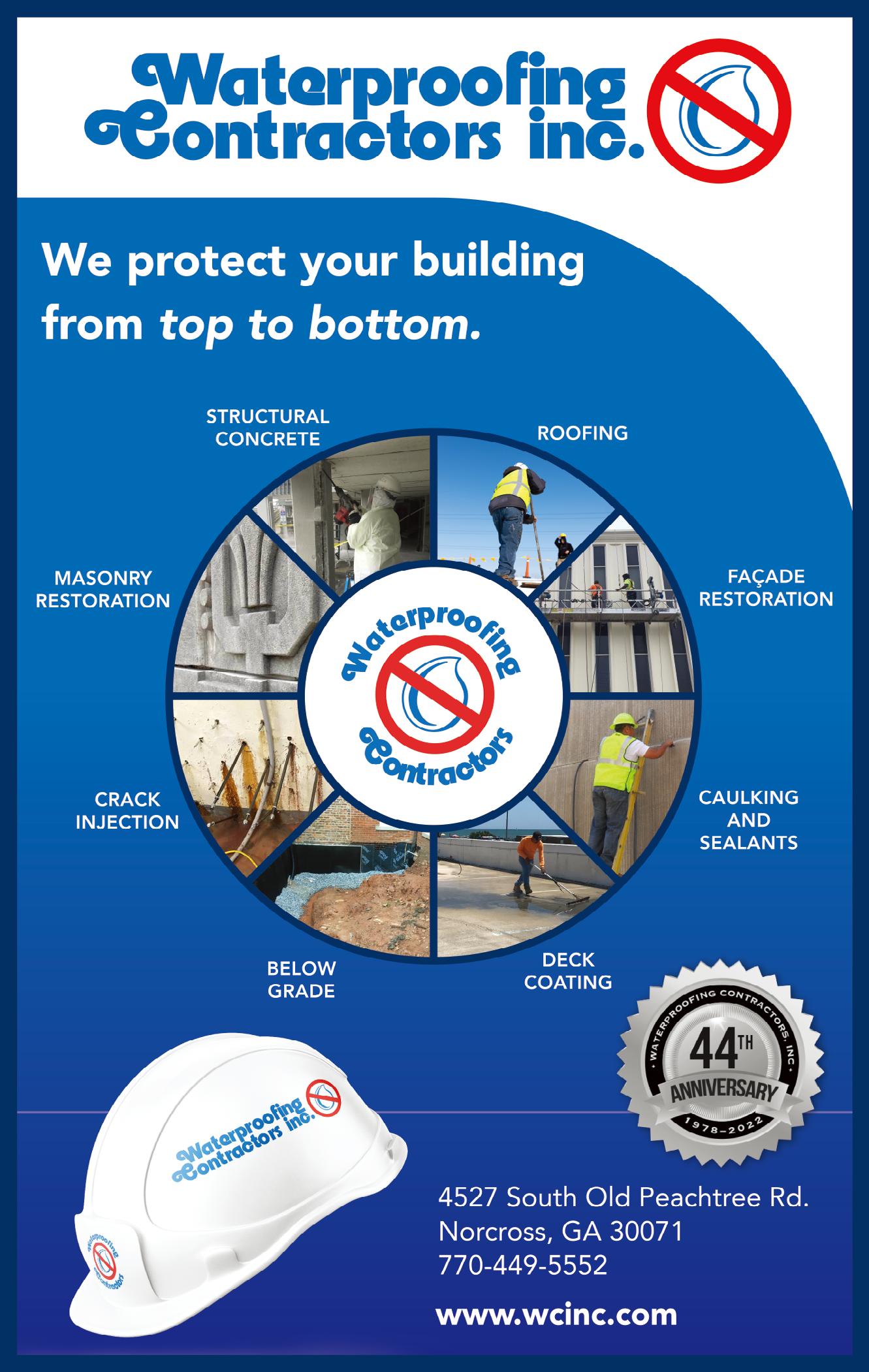

Vendors and property management teams, everyday work to improve operational efficiency, environmental sustainability, tenant care, and more.
Working together is integral to the success of our commercial properties and their organizational objectives and often lead to uncommon results, just as Carnegie defined.
I sat down and discussed property management and vendor relationships with Jansen Trentham, Shane Froman, and Shawn Benjamin. Here is what they had to say.
Jansen Trentham, General Manager, Core Property Capital, knows about collaboration with service partners. This teamwork approach has helped his team execute quickly and with precision.
“Having that ongoing relationship helps so much with being able to collaborate and take action quickly. Items that are large spend capital projects are going to have months of planning.”
“You are going to have to figure out who you are going to work with,
what is going to fit where, and when you have a relationship with someone who is familiar with your property, who doesn’t have to have that lead time to get you more accurate answer on what the needs of your property are going to be and you can evolve with the needs of your tenants and take a more proactive approach to problem solving.” Trentham explains.
“In this industry, the more you have these working relationships, and you have that back-and-forth communication, that is a huge increase in time savings and tenant satisfaction. As a property manager that is invaluable.”
Shane Froman, Senior Vice President, Lincoln Properties, has had years of work with vendors to produce uncommon results for tenants.
“If there is an open dialogue and open discussion you have the ability to have very upfront and frank conversations whether it is good or bad and that allows you to head-off moments of time that can be uncomfortable.”
“By collaborating constantly, you are advancing the industry by having open communication which allows us to move forward faster. An example of this is with Shawn Benjamin, Atlantic Paper, and myself.

Andrew Carnegie once stated, “Teamwork is the ability to work together toward a common vision. The ability to direct individual accomplishments toward organizational objectives. It is the fuel that allows common people to attain uncommon results.”
“He keeps me aware of where we are in pricing aspects and real-life scenarios.” Froman explains.
“We need information from all our partners. We are all in this together to create bottom line value for our clients.”
So where does Froman find the most value from his vendor relationships?
“That is easy: knowledge. Management has always been expected to know a little about a lot of different things, so we are very dangerous when it comes to each of those topics individually. Whatever it might be: HVAC, electrical, janitorial or whatever. We know a little to be dangerous and enough to be smart about it and learn by trial by fire in many ways.”
“Where the vendor partner comes in, and I can speak on many companies, like Shawn, where I reach out on a regular basis and say give me the scoop on this. Give me the knowledge and how is this going to affect x, y, and z.”
“It is their specific knowledge of their particular industry or trend in that industry that is helping me move forward in that particular area.” Froman said.
Trentham expressed a similar sentiment. “Often, as landlords, we look property by property and don’t realize that a solution that works at one, may work in all the buildings. It is a way to make a more solidified portfolio.”
“Working with vendors that you trust and who have that expertise that can recommend products, that I, as a property manager, know next to nothing about, who can bring my level of understanding up to somewhat close to theirs.” Trentham explained.
“They can bring my understanding to a level where I realize what the benefit or value is and how it is going to drive change for our tenants and what I can communicate, most importantly, so they can see what is being done on their behalf. I think that is just such a huge way to build those relationships and it is a super valuable one to have.” Trentham stated.
As a vendor, supporting the Commercial Real Estate Industry, Shawn Benjamin, Account Manager, Atlantic Paper, takes a very proactive approach to help his customers.
“For years, I tried to put myself in the shoes of a Property Manager or Owner and try to understand what is their pain point, what are their daily struggles and understand where my value is at. And how do I bring whatever I can, whether it is product, knowledge, or a service to them?”
“I try and take one of the hats off these professionals so they take care of their other tasks. I think true collaborations allow the CRE professional to be successful, the vendor partner to be successful and it’s easier to understand when you have these conversations.”
“The best collaboration is developed over time.” Benjamin continued. “I was thinking about Shane the other day and how we got to know each other. We both had similar interests and through the years developed a deeper relationship.”
“So even when he left the Property Management side and went to the vendor-side we still maintained that relationship. So when he got back into it, he felt a comfort level and a trust that I have his best intentions at heart and that stuff doesn’t just materialize overnight.” Benjamin, with years of experience, has had the opportunity to guide others in their journey.
“I’ve had vendors reach out to me and ask if BOMA is worth it and I ask them what are you going to put into it? Because you are not going to walk into a wine tasting, a lunch, or a sporting event and suddenly have these relationships that people feel they trust you, value your opinion, and know you are competent.”
“It takes time. And it takes hard work. And it takes honesty. There are a lot of things that go into it. But it certainly doesn’t happen overnight.” Benjamin explained.
“To add to that,” Froman said, “I have a unique situation, where I left and went to the vendor side for four years. When you do that, you learn very quickly who you made relationships with are long standing because those people don’t disappear.”
“There are quite a few folks, who would reach out and give me a call to see how I was doing, even though I was on their side of the world. So, when I did go back, those were the first people I called when I needed something. It was because of their trust. They weren’t out just for their self; they were there as their authentic self.”
“I used to speak at the BOMA New Member Orientations, and I always promoted to vendors, you need to develop relationships with people and don’t come at it with a complete business mindset.” Froman continued.
“By that, I mean, invite someone out for lunch, or swing by the office, and you’re not there to pitch business, or what you’re selling. Actually, take them to lunch and ask them how they are doing.”
“Ask them about real world things, share about your life and family, ask them about their life and their family. And try not to talk about business and see where that gets you in your relationship.”
“If every time you call, folks feel like you are trying to sell your product, that is not a relationship, that is just a sales call. Treat property managers the way you want to be treated. I caution folks who sell by the number.”
“Close the deal and move on and never stay in contact? That is an unfortunate way of doing business.” Froman said.
One of the most challenging tasks for all property management teams is budget season, so I wanted to know how vendors can support our property management professionals through this process.
Froman was able to provide some great advice, “It used to be, budget season was in September and October, five or eight years ago, and budget season now is July through October. And in some cases, June!
www.bomageorgia.org • www.creinsightjournal.com
“Realizing that coming to us with numbers in October and September is worthless. We have already done all of our work.”
“So, for me, I am writing budget policies in May/June and soon every Property Manager will have their budgets and what they need to budget for, from a corporate stand- point and all the way down.” Explained Froman.
Froman therefore suggests a few questions to engage with your Property Management team. Such as:
”I’d really like to be a partner with you and understand more about your budget process so I can be more beneficial to you as a service partner. How does that work?”
“What is a good time to present you with things, for you to think about?”
Benjamin was able to provide a different, yet valuable perspective as well. “With product, it is important to keep Property Managers posted on market dynamics and how those dynamics may affect pricing moving into the next year.”
“The pandemic has really changed our conversations toward occupancy levels, which affects stocking levels. It is very difficult for us, especially now, during budget season, to predict what is going to happen.”
Collaborations between service partners and property management are indeed beneficial to everyone involved, but these are also business transactions.
So where does pricing come in, in this equation? Do all vendors have a possible incorrect assumption about their prices to customers?
“Absolutely. Service partners have the assumption they need to be the lowest bidder.” Said Froman.
He continues, “And in some cases that is absolutely correct, because we have some clients, bottom line, written in our management agreement, that we must accept the lowest bidder.”
“However, there are also agreements, which is most of them, where it is a part of our job, to go to our owners and even if a service provider is higher or mid-bidder, to validate why, we believe, that is the right scenario for this situation. So don’t always assume lowest bid is where we are always going to go.”
“What we are looking for from the partnership again, is the numbers that are going to truly make a difference and even if it is a little higher. What are you bringing to the table? What is the variable?” Asked Froman.
“Work with us to point those out and make sure we understand that, because we are not always the smartest person in the room.”
“Make sure we understand while you may have a small increase in cost, you may be supplying us with something that is so much greater in value that is not necessarily tangible to the dollar so that we can provide to our client and then it relates back to that tenant experience.” Stated Froman.
“And I will tell you, we are looking at a lot of that stuff, because our tenants are trying to get their employees back in to these buildings and create an environment they want to come back in to and not stay out.”
“We are asking ourselves, what can we do for large impact and small cost impact that will create a better impact to the tenant’s employees experience, coming back to the building and help them get back in.”
Froman continues, “The cost of the product is one thing, but the service is another. We are going to take a look at your numbers but we are also going to check your service levels because we may see they have the lowest cost, but they fumble a lot of the deliveries and although their pricing is great I don’t know if we want to do business with them because they can’t seem to get us our product on time or there is always a fumble.”
“So we may go with company B whose pricing is a little higher but they always deliver on time.”
Benjamin is very familiar with this as well, ”I recently won a piece of business where my costs were higher, but the customer chose us, because they knew the people in my company.”
“ They trusted us. They were tired of mistake after mistake from another supplier and they were willing to give up a percentage of cost savings, but they were willing to pay a fair price for someone they trusted to always do the right thing.”
Ultimately, all of this comes down to providing greater value for the tenants of the building. How do vendors provide value to the tenants of these great buildings?
Benjamin does it, by, “Staying on top of what is out there and what is going on in the market. It is like what you said Shane, when you took over 171.”
“You told me you wanted this to be a premier property and have products that elevate the tenant experience. Bringing those products and experiences that people may not have and not know they have until they experience it and get that wow factor.
“Bringing those technologies and trends is one way we provide value to the tenant experience.”
Froman answers, “I feel the service partners, in many ways are more responsible for that tenant experience than property management. Especially from that frontline of experience.”
“Whether it is product or direct experience with the staff they provide. So when you look at our service partners that are security, janitorial, or garage, or those that supply a product to us, like Shawn.”
“When a tenant walks into a building, generally the first person they see is garage management or staff, so that is the ambassador that first reached them.”
“That is the first experience they get.” Froman explains. “It is not management. It is extended staff of our team, which is how I always ask my management team to look at it, as those vendors as extensions to our team.”
“So, they walk out of the garage and walk into the lobby and the first person they see there is the security officer. Then they get into the elevator and that elevator technician has kept that elevator running and kept it from jolting around.”
“Then they get to their floor and they go to the restroom before going to their desk and in the restroom, the janitorial team has kept it pristine and smelling good so then there is that pleasant experience, then you get into paper supply, air care, automated faucets, and soap dispensers that work like they should and there is that pleasant experience.”
“So, behind all that, making sure it all jives is property management.” Froman says. “A lot of those first touch experiences are by our
service partners and therefore almost 100% of what they do affects the tenant experience.”

Trentham wraps it all up very nicely when he states, “As landlords, we know a vendor can make or break your building.”

“Having a vendor you trust, and that you know you are getting good knowledge from and have that working relationship makes so many things easier and in industries you may not understand while you are dealing with a million other things or just because, what faucets are best for a restroom are something I am not going to know off the top of my head. So having a vendor that is an expert in that regard is just huge and all landlords should be focusing on more than ever.”
Dusty Muck is is an Account Manager for Rubbermaid Commercial Products, providing waste/recycling, cleaning, material handling, and washroom solutions to business in Georgia. In addition to his work with Insight, he works as Ambassador to new BOMA Members and serves on the BOMA Georgia Foundation Board, and the BOMA Government Affairs Committee, assisting strategies on legislative and regulatory matters affecting the commercial real estate industry in Georgia.

Environmental Stewardship is embracing a responsibility to protect and improve our environment by implementing sustainable practices.
Everyone’s actions affect the environment in one way or another, including commercial buildings so why not utilize environmental stewardship as a catalyst for tenant engagement, reduced maintenance, and lower costs?
Urban beekeeping is sustainable, educational, and engaging for tenants. Lee-Kathryn Bonner, founder, and CEO of Bee Downtown, recalls how excited employees and tenants get about their corporate hive program where tenants are invited to engage and learn about the bees.
“One of our property management groups, Accesso Club, in Atlanta. The first thing a new employee at their company does is they go to see the bees and they’re so proud of having their bees on the campus” explains Bonner.
The on-site nature of this engagement allows more team building opportunities as well as an environmentally friendly workplace.
According to Forbes, many tenants today want to work and live at environmentally conscious buildings where owners and managers are intentional about the sustainable practices they choose to be a part of. Urban beehives are an amenity allowing people to connect to agriculture in a safe and controlled setting.
Bonner adds, “For many people, it’s the first time they’ve ever been invited to experience agriculture and it’s presented in a really fun way where they’re not in charge of the bees because it’s a skilled agricultural entity facilitating the event.”
With companies like Bee Downtown, property owners and managers can purchase programming packages where a beekeeping organization will facilitate educational programs aimed at team building. This can include candle making, honey tasting, hive tours, and more.
“What we really focus on at Bee Downtown is getting people to love where they work and love the bees and the environment at the same time” says Bonner.
Beehives in commercial real estate are an investment but the benefits are plentiful with tenant engagement, LEED certifications, environmental impact, and more.
Urban beehives can increase environmental stewardship for tenants and managers as well as engage tenants to participate in exciting experiences.
Beehives and other pollinators can greatly improve green roofs and other rooftop green spaces like gardens.
Community gardens in commercial real estate are a fantastic way to increase tenant engagement and provide fresh produce for tenants and visitors. For example, a commercial property with multiple restaurants may benefit from on-site produce gardens.
Conventional gardens require large allocations of space, which can come at a premium in many commercial spaces. Vertical farming is an excellent solution when space is tight. Hydroponic, aquaponic, and aeroponic farming technologies are all methods of vertical farming used in urban landscapes.
These techniques differ from conventional farming due to their lack of soil. Vertical farming also requires significantly less spaces than conventional farms.
These techniques are time and yield efficient while using a fraction of the resources required for conventional farming. Hydroponic and aquaponic systems also differ from conventional farming methods because they utilize submersion techniques where the roots of a plant are fully underwater to absorb the maximum nutrients.
Many vertical gardens and farms are housed indoors lowering the impact of climate considerations on what your property chooses to plant. Indoor farming allows for increased flexibility in where these systems are located on your property. Their vertical nature also saves space and is adjustable to meet various measurement location considerations such as in a lobby or recreation area.

In the Midwest region, Pale Purple Coneflowers and Wild Geraniums are ideal for pollinators. Being intentional about planting native species that are beneficial to pollinators is not only helpful to biodiversity but also cost effective. Native plants require less water, pesticides, and fertilizers and require lower maintenance.
Once your vertical or pollinator garden is in place, the next step in a comprehensive environmental stewardship plan is addressing the migratory bird populations.
Have you ever had a bird fly into your window? When a bird collides with a window it can be frightening and unsettling for tenants and staff. Tall buildings with large windows can confuse migratory birds because of their transparency. These birds may collide with windows, resulting in their injury or even death, as well as a horror story for the unfortunate person working behind the window. Tall buildings can also block bird’s migratory movement, leading to irregular reproduction patterns and displacement, affecting other flora and fauna in an area.
“Somewhere between 350 million and one billion birds every year in the US alone die from running into glass. It’s not just large commercial structures, it’s small commercial structures and its residential properties” explains Adam Betuel, Director of Conservation at Georgia Audubon.
Properties can avoid this through treating your windows with fritted, etched, or UV-glass. Fritted glass has printed designs or patterns on the surface of the glass that can serve as a visual cue to birds that the window is solid.
Etched glass utilizes of abrasive materials to create a pattern or markings into a piece of glass to give it a translucent white finish. UV-coated windows utilize an opaque film to block solar rays, rendering them visible to birds. All three of these treatment options have an added benefit of reducing the cooling costs in a building by reflecting or blocking heat.
“The main thing is you must provide that visual cue at the right spacing” explains Betuel. “The American Bird Conservancy and other groups recommend something called the two-by-two rule. This means you need some kind of visual cue every two inches horizontally or two inches vertically to stop a bird from trying to fit between those markers.”
Vertical farming can be another added amenity for tenants in commercial properties. Tenants could have access to fresh produce regularly or participate in educational or team building programs similar to urban beehives producing honey for tenants as well as educational opportunities.
Additionally, pollinator centric gardens are a fantastic way to attract pollinators like honeybees and butterflies with aesthetically pleasing vegetation. Luckily, pollinators appreciate a variety of colors so planting a variety of native species with a diversity of colors will help attract pollinators and create a balanced and beautiful habitat.
In the Southeastern United States, wildflowers such as Golden Alexander and Butterfly Milkweed are native to this region and are pollinator friendly. In the Pacific Northwest, native flowering plants like Selfheal and Large-Flowered Collomia are perfect for attracting pollinators.
Another way to prevent or reduce bird collisions is altering lighting in buildings. Betuel explains that building owners and managers can save energy by installing motion sensors or timers on their lights and help prevent bird collisions as well. Reducing the light in a building, especially at night, will prevent birds from being attracted to commercial buildings.
Migratory birds have specific ecological benefits like pollination, seed dispersal, pest control, and more. Their survival across long distances is already difficult, and urban development is an obstacle that can be directly addressed. An estimated 350 million to 1 billion birds die from building collision annually but that number can be reduced with alterations to glass such as fritted, etched, or UV treatments and reduction in light use with motion sensors and timers.
www.bomageorgia.org • www.creinsightjournal.com
Environmental Stewardship
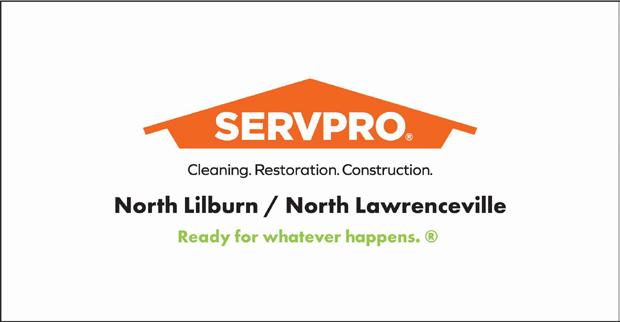
Protecting local and migratory bird populations can help protect your community from pests, reduce your property’s impact on local wildlife, and allow the community and tenants to enjoy the birds who help define the area’s we inhabit.
Tenant retention and engagement is a huge part of owning or managing a commercial property. Many prospective tenants today are looking for environmental stewardship in their workplace.
Urban beekeeping, vertical gardens, and conscious building practices are only a few ways property owners and managers can engage in environmental stewardship to enrich their tenant’s experience at their property and lead their community’s sustainable development.
Urban beekeeping and gardening help enrich tenant experience by making educational and team bonding programs readily available while being sustainably conscious. Altering windows and lighting in buildings not only helps migratory birds but also helps reduce energy costs and improve a building’s sustainability.
Sources:
2. Adam Betuel, Director of Conservation at Georgia Audubon.
3. Bird-Friendly glass : protect birds with patterns & coatings | Guardian Glass
4. Building Collisions Kill Hundreds of Millions of Birds per Year | Audubon
5. Five building tips to help migrating birds this spring - REMI Network
6. The Increased Importance Of Environmental Sustainability In Real Estate (forbes.com)
Kathryn Kavanagh has just started her fourth year at the University of Tennessee studying Agricultural Communications. She is a member of multiple on campus organizations including a professional law fraternity and a Panhellenic sorority. After she earns her undergraduate degree in December of 2022, she plans on pursuing law school in the Fall of 2023.
This past summer, Kathryn served as a communications intern at BOMA Georgia. She is currently a communications assistant and social media coordinator for the UTK research project FEWSUS.
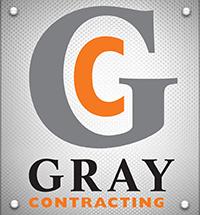

Diamond
Casey Dixon
Chris Dlugolecki
Jacob Wilder
Aaron Moriarty
Amanda Bare
Amanda Madrid
Andrea Allen
Anita Scarborough
Carla Moule
Chonte’ Martin
Chris Allen
Constance Hodges
Debi Gilbert
Dena Rodrigues
Elaine Bare
Emily M. White
Lauren Armistead
Roni Page-Dowdy Sarah Francis
Jennifer H. Cooper
Jessica Nix
Jimi Broderick
Judi Sponsel
Kinsey Hinkson
Laure Biel
Laurie Harper
Morgan Cohen
Neschune Henry
Russ Hazlewood
Stacy Abbate
Stephanie S. Scurlock
Ruby
Ian Hughes
Jenifer Wright
Tammy Weeks Trent Patterson Emerald
Alfredo Garcia
Brenden Welch
Christine Bailey
Dusty Muck
Hal Moore
Mark Gallman
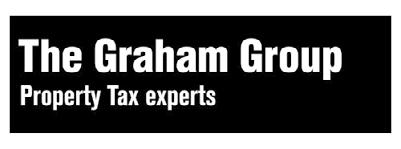
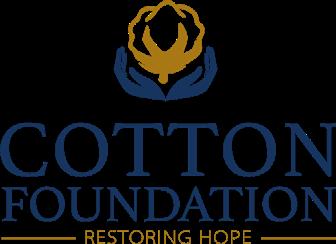
Sapphire ($2,500) Insight • Issue 3, 2022 16

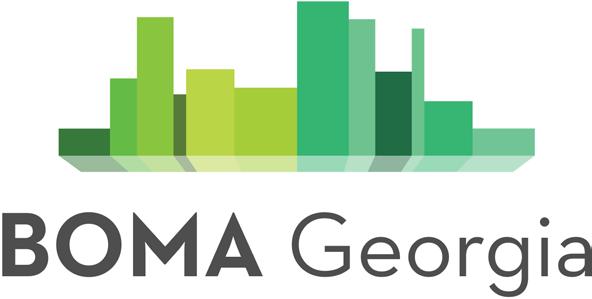



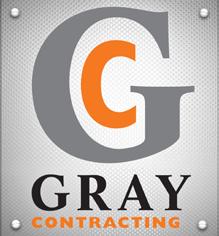







Mentorship is something that I hold dear to my heart and have throughout my career. It is something that provides me personal and professional fulfillment. One of my greatest joys in being a part of BOMA Georgia is the community and family we foster.
Mentorship is one of the best ways to build loyalty and trust while retaining the talented people we invest in. Mentorship and teaching are things we all do, whether we are conscious of it or not.
The impact of mentorship is immense. Teams are more productive when everyone is moving in the same direction, and a mentorship program can give direction as an employee becomes a key part of your organization. Mentorship can build a foundation for them to stand on as they push through the challenges we all face.
Actively invest in your mentees. Enable their continued education and teach them directly while building their self-value. Mentorship programs help create an environment where people can grow and learn from each other; improving their performance both as individuals and as a team.
A mentee who understands the culture of the commercial real estate (CRE) industry is more likely to contribute positively to your organization. A mentorship program can be an excellent way of helping your employees to understand our industry’s work culture and fit into it. Property management is a unique and at times challenging role. Understanding the industry and growing into their role in it will let your mentee to thrive.
Your mentorship program does not necessarily need to be a one-toone program. Regular check-ins can be a great way to see where your mentee is in their acclimation to the organization.
Mentorship can take many forms and adjusting to the unique needs of your mentee will give them the tools they need to succeed more effectively. Bring them to industry events and introduce them to your peers.
A simple introduction from a leader can have an immense benefit in the respect they are given from peers. Show that your mentee has someone behind them and give them the support they need to do their job more effectively and interact with the vendors and tenants who populate our industry.
While it’s important to help people get to know each other through social activities and group outings, it’s also important to help people to understand our industry so that they can feel comfortable and productive in their working environment and can rely on their colleagues and peers when the going gets tough.
BOMA Georgia is a family, and while we all compete in the same industry, we also help each other and rely on each other. Building those relationships and bringing your mentee into them will help them grow into commercial real estate.
Mentors can have a large impact on the productivity of their mentees by providing advice, tips and best practices. Mentors can provide mentees with access to their own experience and expertise to help mentees reach their full potential. This can be especially effective in helping people to deal with problems that occur on a more regular basis.
Teams that develop their own leaders through mentor/mentee programs can develop loyalty and staying power in their employees. A mentor and mentee relationship can help members of your team develop the skills and expertise to become future leaders while increasing the productivity of your team even further.
Giving your mentees the information and experience you have developed at your properties can put them a step ahead of the challenges we have faced. Things like what a tenant prefers, how to solve specific issues, how to navigate and solve a mistake.
Mentorship also gives an opportunity to foster and develop a more diverse workforce. Ensuring that people from a variety of cultures, backgrounds and ages can access mentorship programs and grow into our industry will ensure the excellence of our next generation of leaders.
Our industry benefits from a diversity of thought and experiences, the different perspectives we see the world through allow us to react to anything and everything.
A diversity of thought enables CRE to continue to sit at the edge of innovating by defining the trends that affect us all. Growing this team can lead to numerous future benefits and will allow your next generation of leaders to utilize a diversity of thoughts and experiences as they lead your organizations.
While active mentorship through check-ins and investments are important, another part of it is the idea of passive mentorship, which embraces the importance of leading by example. Be an example, show your mentee how you handle both the good and bad situations.
The highest praise a mentee can give you is a silent one –confidence and success – and it can be seen in how they conduct themselves every day.
Passive mentorship can be strengthened through the active investments you make in your mentee and can show up as your mentee continues the cycle of mentorship. It is important to remember that we are not just raising the next generation of leaders, but the way we teach and grow them will define how they mentor in the future.
Earlier, I discussed how important it is to invest in our mentees and employees. Continuing education and membership in industry organizations are some of the ways we can invest in our people and grow their skills.
A mentorship program can help to provide your team with a wide range of continuing education opportunities and can help your team to stay up to date with the latest and best practices in commercial real estate.
One excellent example of this is BOMA Georgia’s nationally awardwinning Inclusive Leadership Certificate Program.
I had the pleasure to take part in this year’s program, and I gained so much from it. The Inclusive Leadership Certificate Program was developed in late 2021 to offer a collaborative education experience for managers and mentors.
Through these classes, I saw the similarities we share, along with the struggles we have had to overcome throughout our careers, and particularly over the past several years. I had the opportunity to hear firsthand how people have overcome their struggles and grown and developed into the people they are today.
One of the program topics was emotional intelligence, and how developing and being aware of one’s own emotional intelligence promotes and encourages greater success.
From time to time, all of us have felt unwelcome and excluded in our professional and personal lives. The main topic of the program is inclusivity, an important and dynamic topic particularly in the context of today’s world.
As leaders, we need to sense and recognize when someone around us is feeling excluded, and act swiftly to remedy. We also have a responsibility to use the experience as a teaching moment for others. I recommend that as leaders and future leaders you consider enrolling in a program like this.
Your investment will yield enrichment and insight into your own emotional intelligence.
A mentorship program can be an excellent way of helping your colleagues to reach their full potential. By helping your team members to get to know each other and learn from each other, you can help to foster a positive culture of collaboration and encourage your team members to grow and learn from each other.
This is just the start of the benefits you can expect from growing and investing in your team. If you are looking to strengthen your team, mentorship can be a great approach. It can help to build stronger relationships between team members, grow the loyalty they feel towards your organization, and provide opportunities for learning and growth.
Amanda Madrid, RPA, FMA, LEED Green Associate, is the Associate Director at Cushman & Wakefield, she currently serves as the 2022 BOMA Georgia President.
She is an innovative, detail-oriented, and highly effective Commercial Property Manager with 25+ years of experience in managing property operations to minimize costs and maximize income while achieving excellent client satisfaction. She is a high-energy leader with excellent communication and negotiation skills who works effectively with staff, clients and fellow executive team members alike to consistently achieve or exceed operational objectives
Amanda earned the Real Property Administrator (RPA) designation from the Building Owners and Managers Institute International (BOMI International) in 2008; the Facility Management Administrator (FMA) designation from BOMI International in 2009; the LEED Green Associate designation from the U.S. Green Building Council in 2011; and obtained a Georgia real estate license in 2014.
www.bomageorgia.org • www.creinsightjournal.com
Commercial workplaces make up a huge proportion of real estate and economic activity and require skillful navigation to create. Having a great place to work is about more than space or furniture; it’s about having a home base that’s a hub for operations, values and culture.
Even though some organizations seem to have this down to a science, the fact is many tenants find themselves in uncharted waters. Whether you’re a start-up or new organization, face expansion, relocation or are grappling with the evolution of what a workplace is, having a good sense of the process is imperative.
Although the office has always been perceived as an extension of core values; the “brand” has taken on new meaning for the workforce.
In this post-Covid world, the task of enticing employees to want to come back to the office with forward thinking, flexible, comfortable, safe working environments that will enable business owners attract and retain employees should be top-of mind in new office designs.
At a very high level, most organizations generally track with a process similar to the following:




• Consider allies who can help you navigate from day 1, such as a licensed commercial Real Estate Broker
• Determine where you want to be geographically
• Establish the type of facility that will suit your needs
• Consciously evaluate your workforce and what matters to them
• Identify key market dynamics such as real estate costs, commute times, flexibility options to support growth, convenience or amenities attractive to your workforce, proximity to other relevant organizations, etc.
• Search the market for available space
• Conduct Due Diligence and negotiate lease terms
• Work with trusted partners to plan and design your space
• Build out your space
• Occupy and evaluate
This brief article will lightly touch these phases, but what’s important to keep in mind is: you are not in this alone. Trusted allies are your best resources to uncover opportunities, blind spots and balance out your project team. So whether you’re brand new to this, an old pro or it’s been a while, first: build a great team.
For many, the rational place to begin is finding a licensed commercial real estate partner. Not entirely dissimilar than when shopping for a personal home and leveraging a Realtor, a good commercial partner will offer market insight, ability to help evaluate your preliminary needs, and provide brokerage services to negotiate leases that can have substantial cost implications short and long term
That broker will act as the liaison between all building owners, landlords, architects, designers, contractors, etc. and will set the initial tone for the project as it progresses thru the various stages.
A good Broker will be your guide to finding opportune properties to consider, orchestrate site visits, and communicate with building owners. They will typically provide a wide range of options that can then be focused down to priority sites.
Ultimately to permit and construct your project, you will require a licensed Architect, even if only renovating existing space. And some commercial real estate partners begin on-boarding a design partner early enough to help you identify goals and major project parameters while your property search is being conducted, as this can streamline the process significantly.
Many however begin on-boarding a design partner once a focused “short list” of potential properties is established so that design partner may produce very preliminary floor plans known as “Test fits” to help inform the final decision about where to locate.
It cannot be overemphasized how important the selection of a great design partner is to the ultimate success of your project.
Many firms are qualified to produce drawings to permit and build-out spaces, however every project encounters challenges, and whether these are navigated with organized calm or high drama can often be greatly influenced by your design partner.
Depending on schedules, budgets, or recommendations on design partners that would suit your organization, Brokers will typically issue a Request for Proposal (RFP).
This RFP will include detailed information about the client, overall project parameters including desired size, locations, expectations of services, documentation, deliverables, contracts, timeline, etc.



The RFP includes a spectrum of requirements necessary to carry the project from inception through final occupancy and beyond.
When meeting potential partners, consider not only the cost of fees; but, also relevant experience, size and capabilities, team makeup, personalities and proven ability to execute and deliver great results.

Consider the following questions when vetting a design firm:
• How eager are they to get to know your unique needs?
• How much does the portfolio of work they share inspire you?
• Are they willing to bring the latest insight, new ideas, or questions your team hasn’t yet considered to bring value to the process?
You’ll be working closely with this team for many months or even years (on larger projects), so be sure and find talented people you communicate well with and enjoy working with. There must be confidence in the chosen design firm as well as a level of trust; if you don’t hit it off on a personal level then that firm may not be the best fit for you.
There are many, many factors that go into anticipating project costs and it’s important to lean on your Broker and Architect to establish the foundation of a good Project Budget. Leaning on your project partners can be invaluable in making sure expectations are realistic and all components of a project (not just construction costs) are being managed.
The Brokers will typically negotiate “Tenant Improvement” money financed by the lease that will help offset the cost of your buildout, and make sure other lease terms that impact the budget are managed.
Your design partner can help here as well by offering competitive “Soft costs” (like design fees, engineering fees, graphics/signage, etc.), as well as providing guidance on level of design, initial product specifications, etc. by applying their experience in the industry, types of projects and the associated cost/SF for reach type of project, they can begin to set the expectations for level of design.
Although your design partners can lay some great groundwork for your project and managing your expectations, be forewarned that there are world events that are skewing the entire budget process including but not limited to supply chain disruption, labor shortages, backed-up permitting and construction delivery, etc.
Even the best preliminary budgets need to be actively maintained/ managed throughout the entirety of the project!
As a property is selected, a design partner on-boarded and budgets are formed, it’s time for the design process to kick into high gear! You are going to hear phrases used like:
• Visioning
• Test-Fits
• Schematic Design
• Design Development
• Construction Documents
These are industry standard terms defining specific stages of the design process.
Each stage has an associated level of information that is provided to all parties as the project progresses; each stage builds upon the previous one until the contract documents are completed and built by a qualified contractor.
Information is key and the Architect’s first order of business is to gather as much information from you as possible. As stated before…it’s not just about space; it’s about the parts and pieces that makes your company unique, what you do, how you do it and why you do it!
Get ready to talk about how the sausage is made; overall business practices, specific business units, employees, adjacencies, and all the functional ingredients that will make your space complete. The architect must become very intimate with your company so that they can best determine how they will provide the necessary design elements for current size, future growth, desired look and feel of the space, branding, design trends, etc.
Don’t be shy…any and all pertinent information that will help the designer create an environment that will survive, maximize your ability to attract and retain talent in the workforce and thrive well into the future is the overarching goal!
As the design progresses, you and your design partner will work closely to refine early ideas, balance your program with final drawings, and make sure your project’s getting the most out of the property you’ve selected.
A good design partner will also ensure your vision is communicated clearly through the design by establishing a clear sequence of experiences, brand messaging, and a look and feel of design elements, like color schemes, finishes, furniture and architectural spaces not only work well, but inspire.
Lastly, base building considerations are key to making sure the nuts and bolts of the things like restrooms, IT access and infrastructure, controlled access in/out of your suite, etc. are all working smoothly.
Construction Documents are a set of detailed instructions that contain plans, elevations, sections, specifications, details, etc. that define every relevant project detail to communicate scope clearly to the awarded contractor.
These documents also include the relevant consultants and trades including Mechanical, Electrical and Plumbing engineers as well as Low Voltage, AV, and often specialty consultants like Structural engineers, Acousticians, or others.
All relevant drawings are compiled into one set of Construction Documents that are submitted to the jurisdiction for a building permit.
Once again, the selection of a great design partner paramount when working with consultants and the jurisdiction; their experience within a particular jurisdiction will help guide the project to accommodate the pertinent building codes, provide specifics, information, reports, petitions, etc. that may be required and include any particular jurisdictional nuances necessary to obtain the building permit.
It must be noted that a common misconception is that Construction Documents and the Construction Process are exact and every aspect of the design/construction has been accommodated.
New construction must always tie into the existing building in every regard; the best laid plans sometimes require changes to meet these existing situations and the construction process must remain fluid to deal with the particular challenges that happen on every project.
That said, your project team is your eyes and ears throughout the process keeping you informed regards to design/construction changes for the unique issues uncovered during construction and how they affect schedule, budget, etc.
Full disclosure of construction issues or seemingly minor adjustments including their proposed solutions, project impacts, costs, etc. should be vetted by the team so that an informed decision is made on how to best to proceed. Once again, communication is key!
Ultimately… construction completes, furniture installs and your workforce moves into a great new space! Does that mean the process is complete? No. As you live in the space there should be periodic assessments regarding the functionality of the space itself, workplace configurations, flow, utilization, etc.
It’s important to keep in mind that how we work is deeply personal and even the best designed projects may face ongoing opportunities for adjustment, learning or improvement.

Having some flexibility baked into your program, utilizing furniture that may be adjusted and reconfigured and making sure your workforce knows the culture your space supports is a naturally growing effort will not only allow more resilient adaptation; but, will empower your teams to take ownership and pride in making your new workplace amazing for years to come.
Mark Schroeder, AIA, IIDA, WELL AP serves as Technical Director with IA Interior Architects Atlanta office. He brings over 21 years of professional experience playing a leading role in managing the technical components and providing architectural support for a wide range of markets – from corporate project types.
Mark has worked on some of the Atlanta studio’s most high-profile accounts and projects, including Papa Johns, Salesforce and Twitter. He is a WELL Accredited Professional with a Bachelor of Architecture from the New Jersey Institute of Technology (NJIT).

Ian Reeves AIA, NFPA, ICC, NCARB, serves as Design Director with IA Interior Architects. With over 20 years of professional experience, Ian Reves is the Design Director for IA Interior Architects’ Atlanta office. In this role, he manages the evolving creative process, focusing on workplace design and helping clients reimagine the future of work. Ian’s approach effectively incorporates innovative solutions that engage and inspire, enrich the community and curate highperforming projects centered on the human experience.
Ian graduated with a Master of Architecture from the Georgia Institute of Technology and a Bachelor of Fine Arts in Graphic Design and Illustration from the Savannah College of Art and Design (SCAD).
• Commercial Cleaning

• Day Porter/ Day Matron Services
• Disinfection
•
Providing exceptional day-to-day electrical and telecommunications maintenance, 24/7 emergency maintenance, renovations, and new construction. Our fleet of highly trained service technicians are always available to provide innovative solutions for any project.
• Commercial & light industrial service construction/maintenance


• Interior/exterior lighting & controls installation/maintenance
• Electric Vehicle Charger installation/maintenance


• ATS, UPS & Generator installation/maintenance
• Cleaning, testing & torquing electrical equipment
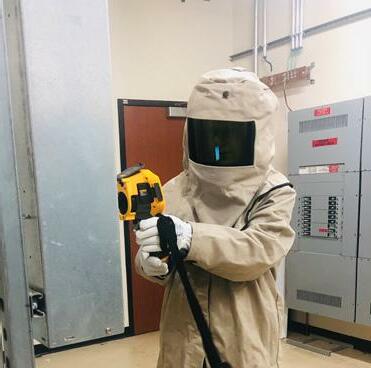
• Structured cabling & fiber terminations

• Infrared scanning
• Breaker testing
•
Smart Buildings are modern marvels.
The combination of Building Automation Systems (BAS), variable frequency drives, automated HVAC systems, lighting controls, and so many other aspects of smart buildings, has given more control and opportunities for optimization to building owners, operators and maintainers than ever before.
Smart buildings enable incredible potential, but also allow for unprecedented access to building systems.
With these incredibly interconnected systems in place, cybersecurity is more important than ever. A great way to protect your properties from unwanted intrusion and cyber criminals is cyber hygiene.
When you wash your hands, you practice good hygiene and protect yourself from germs and bacteria. Cyber hygiene is about checking the access points that may normally be overlooked.
Have you changed the passwords of your BAS from the default? This is one of the easiest aspects of cybersecurity to enforce, and one that is often overlooked.
Cyber hygiene is the process of monitoring and controlling access to devices, systems, and networks. Essentially, it’s about controlling and tracking who has access to your systems and devices through access management tools.
“Attend to the basics, such as an awareness of the threats, and changing default passwords. Cyber hygiene for CRE professionals really revolves around being aware that there are certain threats in the industry.” Explains Michael MacMahon, Senior Association with Newcomb & Boyd.
“A lot of it has to do with social engineering and those are the types of cybersecurity threats people are starting to be aware of, such as phishing.”
Phishing can often be seen in emails sent from addresses that appear to be correct, or even email address that have been compromised through successful phishing attempts.
These emails will typically ask the recipient to do something, such as clicking on a link or downloading a file, or even going to a local store to retrieve gift cards to transfer to another party. There is typically some sort of haste in these requests, but all of them are attempts to infiltrate, gain access, or defraud you of something, be it information, access, or even money.
“As commercial real estate grows, and data becomes more important, systems that were not originally computerized, such as HVAC, lighting control, etc. are being computerized. They have been that way for a little while, but it was primarily maintained in command and control.” MacMahon explains.
“CRE professionals are seeing the value of trending data from [these systems], and you’ll have more and more interaction between

of
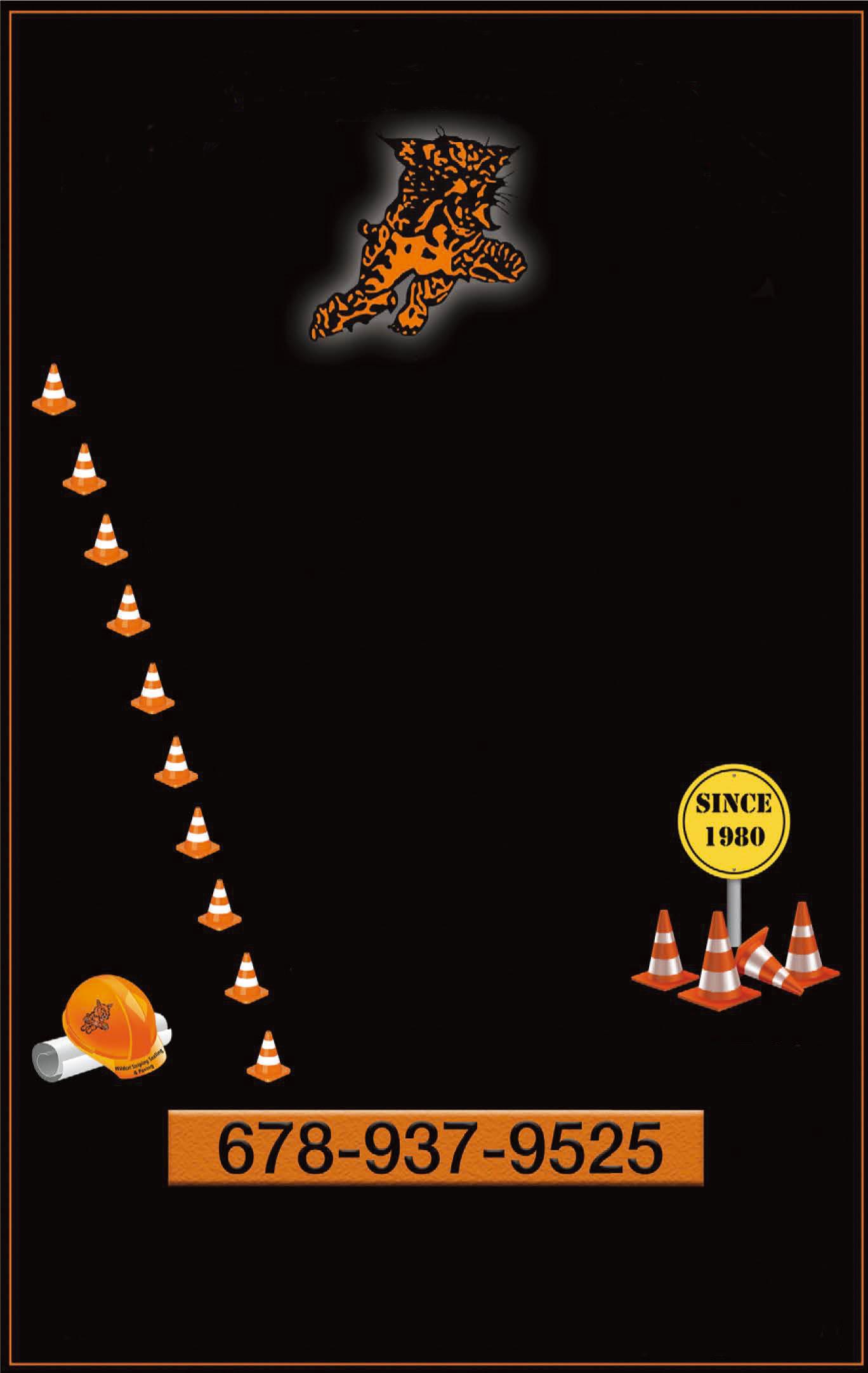
but it also gives an
criminals to attack.
Cyber Hygiene is not just about protecting the security of your networks and devices, but also the privacy of your users: how they access the systems and how they use them. It’s about controlling what data your users can access and how they use it. But what can happen when you cyber security is lax?
MacMahon explains this risk. “A lot of time, default passwords go unchanged. If [someone] knows what kind of system you use, they can quickly find the default password and access your system. An HVAC system with VFDs can be accessed and the speed of them can be fluctuated up and down until they self-destruct.”
Burning out an HVAC’s VFDs would render it both inoperable and would force a costly repair or replacement. During the downtime, tenants would be severely affected and forced to vacate the property if it is too hot or cold inside.


Property managers and maintenance professionals would have to quickly solve these issues, taking important time away from other tasks around the property. All this could come from poor cyber hygiene, and by leaving default passwords in place.
Cyber Hygiene needs to be a core part of any organization’s operations. It is not an add-on to your current security program, but an integral component.
“There are many drivers to adopt and create cybersecurity programs in operations.” Says MacMahon. “From global portfolios down to single buildings, the technology going into these buildings is being driven by ESG, by environmental and sustainability goals.”
“There are a lot of stipulations around the development that that require investments into technology to attain these goals, and those technologies open up more cyber risk.”
Basic cyber hygiene is easiest to implement from the start, but can be corrected later as well, and failure to provide it can have dire consequences.
A good first step is to catalogue all the avenues of entry. Find all the users on each connected device, from your VFDs down to your lights, and find out when they have accessed these systems, and from where.

Disable any users who no longer need access, and change any compromised passwords and accounts. And make sure to change any default passwords that still exist.
From there, you can develop and update your cyber hygiene program regularly. Numerous third-party organizations exist to assist with the development of this program, and those organizations can review and evaluate your systems to let you know the risks your property may face.

A good cyber hygiene program can lower the risk of intrusion provide clear policies to protect information and access, and decrease possible avenue of attack on your network.
The rise of the Internet of Things, and the increasing adoption of automation, has provided opportunities for both risk mitigation and cost savings that were simply not possible before. But with those opportunities come new challenges.
Social engineering, phishing attacks, and default passwords all put IoT connected devices at risk. Good Cyber Hygiene program can decrease the risk of intrusion on your network. This is why it’s so important to implement a Cyber Hygiene program. With a solid Cyber Hygiene program in place, your organization can protect its assets and reduce the likelihood of experiencing a security incident.

Want to learn more about cyber hygiene and cybersecurity? Check out the articles and videos on the topic on CREInsightJournal.com, or join CRE Insight Journal and Cyber security experts on October 18 for an overview of the upcoming Cybersecurity Framework for CRE from Building Cyber Security (BCS).

What is your plan for a fire or elevator outage? How will your property react to a flood, earthquake, or other natural disaster? What is your plan to react to acts of terror or workplace violence?
BOMA International’s Emergency Preparedness Guidebook: The Property Professional’s Resource for Developing Emergency Plans for Natural and Human-Based Threats is the industry’s most up-to-date guide to help property professionals prepare for and respond to a wide range of potential threats.
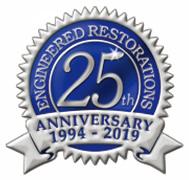
This guidebook walks users step-by-step through four phases of emergency management to help ensure tenant safety and buidling security during an emergency situation. These steps are:



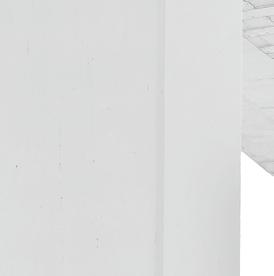





• Mitigation


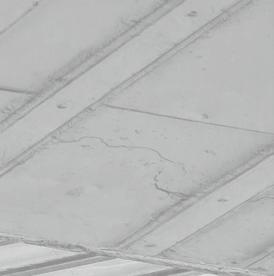
• Preparedness
• Response

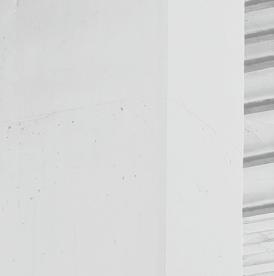
• Recovery
This Emergency Preparedness Guidebook covers numerous emergency situation in-depth like:
• Accidents like fires, public health emergencies, elevator outages and airplane collisions.
• Earth and weather events such as floods, earthquakes, hurricanes and tornadoes.

• Criminal and Terror Acts such as terrorism, bombs, active shooter and workplace violence.
This guidebook features in-depth resources on building effective communications plans and utilizes checklists throughout to help users organize every step of their preparedness plan.




The Emergency Preparedness Guidebook: The Property Professional’s Resource for Developing Emergency Plans for Natural and HumanBased Threats is an excellent resource to have in your toolbelt.
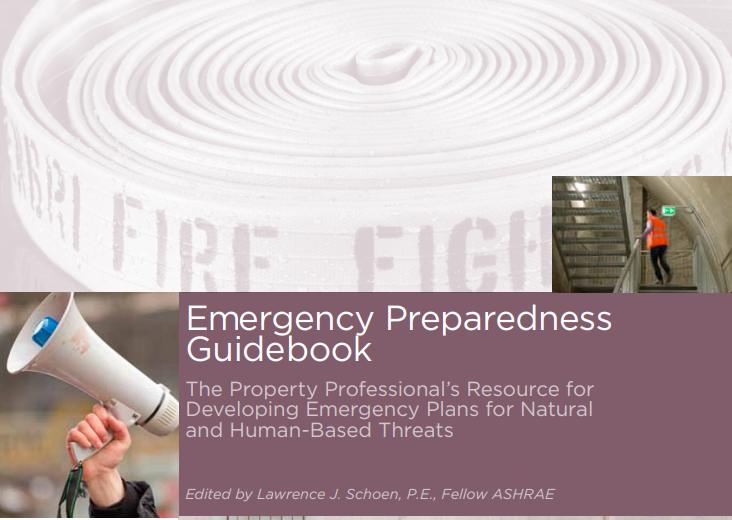


Get your copy today and learn how to build a preparedness plan at your property!

Managing a building during a global pandemic has its share of challenges, one of them being delivering a high-quality environment for tenants.
When seeking out the best solutions for a building, property management teams strive to find cost-effective solutions which have been proven to work.
Tom Melton, a senior chief engineer with Madison Marquette, who has been using UV-C lighting on his own dwelling for 20 years, decided to run an experiment using UV-C lighting in a portion of his building.


20-year-old pristine coil, Melton’s home
UV-C system, Melton’s home
UV-C System, Melton’sBuilding
While UV-C systems have attracted attention during the COVID-19 pandemic, this technology is not new, nor was it new to Melton.
Since he had witnessed the way that it saved energy at his home and also kept the coils in pristine condition due to its antimicrobial function, it seemed plausible to Melton that this could be a solution in the building for which he is responsible.

If you are not familiar with this technology, UV-C systems are germicidal systems whose ultraviolet wavelengths damage the DNA

structure of bacteria, viruses and pathogens. They have been used to purify food, air and water. Hospitals, schools, airlines and other public settings have used these systems as part of their disinfecting regimen.
UV-C Test System
April 2021 (Left) April 2022 (Right)
In March of 2021, Melton chose two comparable air handlers and used one as a UV-C test unit, while the other remained without a UV-C system, as a control group for his experiment.

With professional help from Fresh-Aire UV, Entek, and EC Electric, he received the UVC system (TUD-C-ACS Airborne Duct System), had both air handler coils examined and confirmed to be clean and well maintained, and he monitored the kilowatt hour usage differences. In the first month there was a higher kilowatt hour

on the UV-C test floor.
However, over the next several months the UVC bulb’s performance showed a net savings when compared to the control group -- the floor that did not have a UV-C system.


The bar graph (above) shows Melton’s energy-savings findings using the UV-C test unit. As a sensible solution in terms of energy and maintenance, UV-C technology has delivered promising results for Tom Melton. He and the property management team will continue to monitor the UV-C and control floors’ energy performances.
More valuable benefits of UV-C system bulbs:
• UV-C lamps kill up to 99.9% of bacteria/mold/viruses
• UV-C system bulbs last for two years until needing replacement
For further information, see ASHRAE at the below QR code.

Tom Melton serves as Senior Chief Engineer for Madison Marquette and works in midtown Atlanta, Georgia. He has been working in the commercial building property management business for 40 years and is passionate about energy savings. This article was written with Ariela Ehrens.




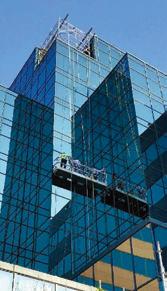
While the right to bear arms is enshrined in the US Constitution, most laws related to firearms are implemented and enforced at the state level. Gun laws vary widely among the fifty states and those state laws cannot be changed by the federal government, unless determined to be a violation of the US Constitution 2nd Amendment.
At the outset, it is helpful to recall that carrying firearms is generally defined in two distinct ways: concealed carry or open carry.
Concealed carry firearms are not visible to others, with the firearm generally held against the body underneath clothing. With open carry, the firearm is visible to all. Until recently, Georgians wishing to carry concealed were required to obtain a Weapons Carry License through their local probate court.
There have been several watershed firearms bills in Georgia over the last decade, including the Georgia Safe Carry Protection Act, enacted in 2014. While many of those provisions remain in effect today, the more recent Georgia Constitutional Carry Act (2022) made changes throughout Georgia’s weapons statute.
This paper will give an overview of Georgia’s current firearms laws. This article is for informational purposes only and does not constitute legal advice. Readers should consult their legal counsel for advice regarding the application of this law.
In 2008, Governor Sonny Perdue signed HB 89 into law. It generally restricts the ability of employers to prohibit employees and visitors from storing firearms in their vehicles while parked in an employer’s parking lot.

While the employer cannot search a locked privately owned vehicle, it can search a vehicle for a weapon if there is a reasonable belief that doing so would prevent an immediate threat to life or safety.
This policy does not extend to vehicles owned or leased by the employer; the employer can still prohibit employees from transporting or storing a firearm in a work or company vehicle. Employers may prohibit firearms if it provides employees with a secure parking area with restricted public access using a gate, security officers, etc.
2010’s law is the result of public meetings in which Georgia Weapons Carry License holders complained of confusing laws about where (and when) they could lawfully carry their weapons.
The legislation removed the 1,000-yard gun-free barrier around college campuses and clarified that the gun-free zone around other schools only applies during hours the school is in session.
The bill also removed the “public gathering” clause, which gun advocates held was ambiguous and unenforceable. The legislation kept weapons out of K-12 schools, government buildings, courtrooms, jails, and places of worship.
Signed into law by Governor Nathan Deal, House Bill 60 allows Georgia Weapons Carry License holders to carry weapons in bars, public housing, and government buildings without screening checkpoints.
It allows weapons at airports in areas outside federal security checkpoints. It authorizes school districts and places of worship to determine if employees and parishioners are permitted to carry, respectively.
It clarifies that a gun owner who does not have a Weapons Carry License but is not otherwise prohibited from carrying may legally possess a weapon on their property, inside their home, motor vehicle, or place of business.
While the aforementioned 2014 legislation allowed Georgia Weapons Carry License holders to keep weapons secured in their personal motor vehicle while it is on property owned or leased by public colleges and universities, the Campus Carry Act of 2017 allowed those same licensees to carry a concealed weapon on university property.
There are several exceptions, including sporting venues, student housing, faculty offices, and spaces being used for disciplinary proceedings. It does not allow handguns to be left unattended (in a locker room, for example); the weapon must be carried in a concealed manner or locked in a car. Governor Nathan Deal vetoed similar legislation in 2016 after lawmakers failed to include several of the exemptions described above.


Governor Brian Kemp signed Senate Bill 319 into law on April 13. The legislation allows a “Lawful Weapons Carrier” to carry a concealed handgun in public without a Weapons Carry License issued by the state. Previously, only gun owners who obtained a Georgia Weapons Carry License could carry concealed. Certain individuals are expressly prohibited by law from possessing a weapon or long gun, including convicted felons and those who are mentally ill.
While SB 319 has essentially made the Weapons Carry License process moot for Georgians, probate courts are still issuing the licenses so Georgia residents can legally carry a concealed firearm in states that practice firearm permit reciprocity with Georgia. The State of Georgia recognizes the weapons licenses of any other state whose laws recognize and give effect to a Georgia license, subject to age restrictions in certain jurisdictions.
Thank you to all who contributed and helped produce this BOMA Georgia Foundation Research. Thank you:
Haydon Stanley (Fiveash-Stanley)
Katie Roberts (Fiveash-Stanley)
Luke Kill, Esq. (Andre Kill & McCarthy, LLP)
Abiola Giwa (Andre Kill & McCarthy, LLP)

Gabriel Eckert, FASAE, CAE (BOMA Georgia)
Jacob Wilder, CAE (BOMA Georgia)
Owen Kavanagh (BOMA Georgia)
www.bomageorgia.org • www.creinsightjournal.com
The Inclusive Leadership Certificate Program features a series of four, two-hour, interactive webinars designed to help individuals build skills that are essential to become inclusive leaders. Participants who fully complete a minimum of three of the four sessions will earn an official Inclusive Leadership Certificate.
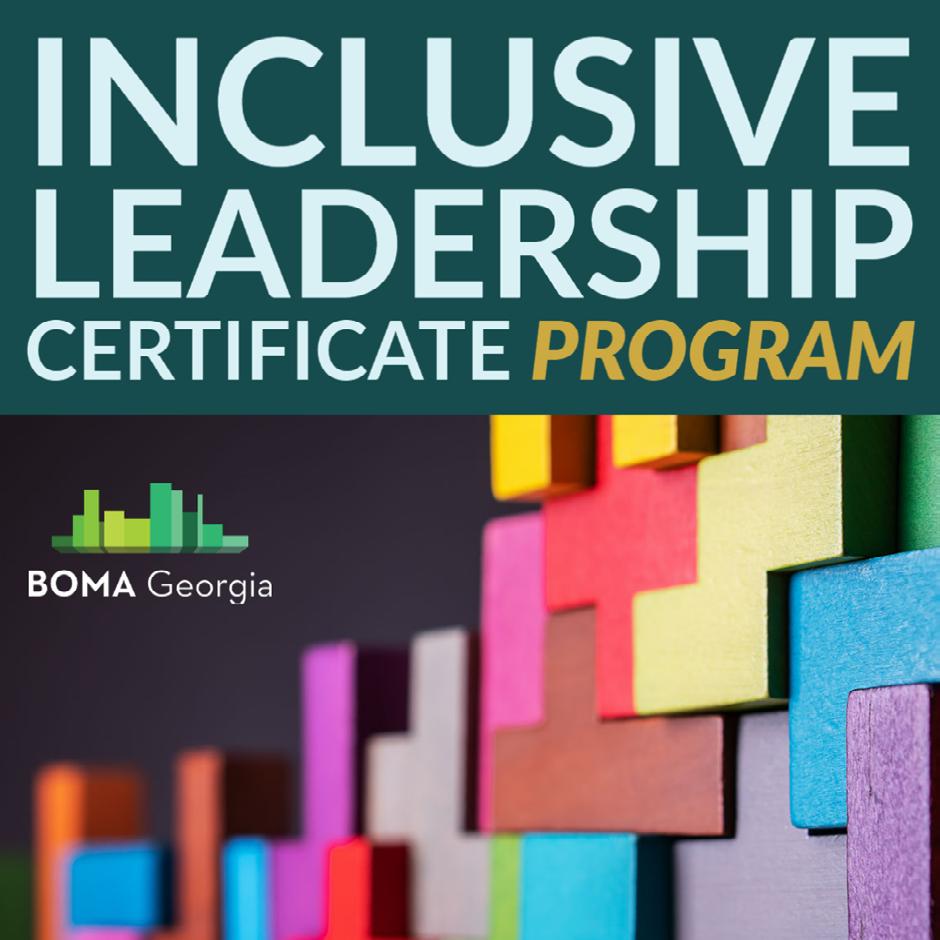
With the fast pace of change in American society, each generation has grown up in a different world, resulting in social and cultural differences that shape mindsets and expectations. Without the right understanding, these perspectives can collide and cause conflict, even when everyone means well, and wreak havoc on workplace morale and bottom-line results.
In this foundational and interactive session, theoretical, historical and practical insights will be leveraged to present a high-level view of the generations in the workforce and how to bring them together for greater understanding – and more effective working relationships.
Our personal backgrounds influence our perspective. Among a wide spectrum of backgrounds within the workplace, it’s no wonder different perspectives can sometimes cause conflict or misunderstanding … even when everyone means well. It doesn’t have to be that way.
With the right understanding, our different views can serve as our greatest strength. In this session, participants will learn how to break down barriers that divide and build up awareness that unites and empowers all people to create a more inclusive and innovative future.
Emotional intelligence- also known as EQ- is a leadership buzzword, but does it mean? How can you gain or enhance it? Where do you start?
In this workshop, you will gain practical insights and tools to recognize, understand and manage your own and others’ emotions in positive ways that ensure your communications are heard and understood by all members of your team – increasing cohesion, boosting morale, and reducing conflict.

Belonging, a sense of fitting in, is a basic human need that, according to Maslow’s Hierarchy of Needs, is necessary before self-esteem and reaching full potential and optimal performance.
Among a diverse mix of perspectives in the workplace, it’s challenging to create a culture where all people belong and are empowered to thrive yet strive towards a common goal. In this session, you will learn how to design a culture conducive for diversity of thoughts, backgrounds, and experiences while ensuring a shared language and expectation set, and movement towards a common goal.
Jessica Stollings-Holder is a national speaker, trainer, author and researcher who empowers leaders to think differently about differences and turn obstacles into opportunities. Jessica is passionate about helping all people feel understood, included, and valued. She knows how differences can help, not hinder, business. And she helps leaders leverage the qualities that make each member of their team unique into an action plan to make teams more successful.
Sign up today to take part in the nationally award winning Inclusive Leadership Certificate Program
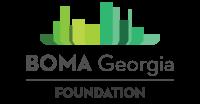
Since the Foundation was created in 2014, it has awarded over 600 scholarships to individuals seeking a certificate or professional designation in real estate. The Foundation has also conducted more than 14 research projects and white papers, all designed to give real estate owners and managers new tools to add value to their properties.
Associate
Individualdonorswhohavegiven$100-$199
Casey Dixon
Chonte’ Martin
Don Moore
Florence Barbour
Jacob Wilder
Judi Clements
Michael Knox Natalie Tyler-Martin Russell Copeland
Individualdonorswhohavegiven$200-$349
Andrea Allen
Dusty Muck
Hal Moore
Ian Hughes
Jen Wright
Jimi Broderick
Laure Biel Neschune Henry Renee Williams Scott Doksansky Stacy Abbate Tammy Weeks
Individualdonorswhohavegiven$500-$999
Christine Bailey
Jeffrey Graham
Jessica Nix
Jessica Nix
Post-Doctorate
Mark Gallman Morgan Cohen Shawn Benjamin
Individualdonorswhohavegiven$1,000+
Billy Gray
Dena Rodrigues
Gabriel Eckert
Marie Worsham
Dean’s List
Mark Dukes Melody Frcek Pat Freeman Tiffany Wilson
Individualdonorswhohavegiven$25,000ormore
Orlando Ojeda
*List updated 8/26/2022
Join our growing list of annual donors www.BOMAGeorgiaFoundation.org

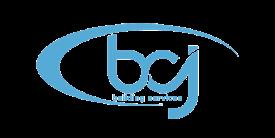
Associate
Companydonorswhohavegiven$500-$999
ABM
Allied Universal Security Services Arborguard Atlanta Property Group Banyan Street Capital BMS CAT of Georgia Brand Real Estate Services
Capital City Mechanical Services CapRidge Partners CBRE

Colliers International Cushman & Wakefield

Duke Realty Empire Roofing Engineered Restorations
ENTEK EPIC
Everclear Enterprises Georgia Paving Gray Contracting Highwoods Properties Lillibridge Healthcare Services Madison Marquette
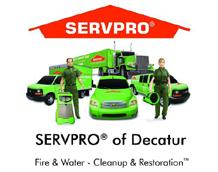

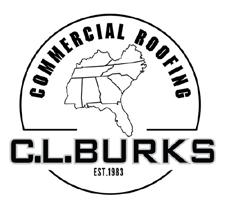

Bachelor
Mayberry Electric, Inc. OA Management
P3 Painting & Renovations
Parker Young Construction, A RESCON Company
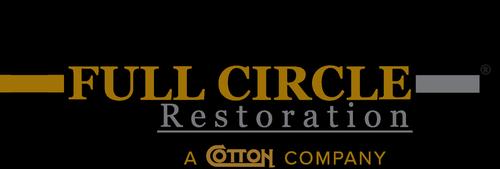
Physicians Realty Trust PM&A
Pope & Land Enterprises

Portman Management Pritchard Industries Prologis Remediation Group
Roof Partners Rubbermaid Commercial Products Russell Landscape SERVPRO of North Lilburn Sesmas Tree Service LLC
SOLID
The Morley Companies The RMR Group The Simpson Organization The Surface Masters
Companydonorswhohavegiven$1,000-$2,499
Companydonorswhohavegiven$5,000-$9,999
Post-Doctorate
Companydonorswhohavegiven$10,000ormore
www.bomageorgia.org • www.creinsightjournal.com
Access Control Systems
Dormkaba USA, Inc. ............. (404) 210-0717
Air Filtration
FilterPro USA LLC (256) 767-4158
Airduct Cleaning
Ductz Of Greater Atlanta (770) 631-2424
Appraisal Consulting
Fellers, Schewe, Scott & Roberts, Inc. ....................... (770) 621-9548
Asphalt Construction Miller Brothers Paving (770) 491-3090
Attorneys
Andre Kill & McCarthy LLP (404) 653-3005
Audio Visual Services
Vertical AVTV (404) 352-2488
Bldg Mgt Consultants
HqO (404) 403-1850
Wtec Inc. (470) 628-7270
Yardi Systems ....................... (805) 618-5422
Bldg Services
CBM Atlanta Inc. (770) 988-9001
Century Fire Protection LLC .. (678) 775-4870
Eastern Glass & Aluminum (404) 904-6537
Engineered Restorations Inc. (770) 682-0650
IA INTERIOR ARCHITECTS ... (404) 504-0297
Painters on Demand (404) 603-6550
WiseGuys Pro-Wash (404) 596-5559
Building Automation Controls
Dormkaba USA, Inc. (404) 210 0717
ENTEK (678) 910-1326
Hoffman Building Technologies (470) 387-1619
Honeywell Building Technologies ....................... (470) 501-9472
Carpet/Floor
Atlanta Flooring Design Centers Inc. ............. (770) 476-8306
Mad Matter GA (678) 361-6704
ServiceMaster Cleaning & Restoration ......................... (770) 514-1789
SOLID Surface Care, Inc. (678) 354-6726 X 221
Catering/Food Svcs
Ben & Jerry’s (404) 666-2232
Cleaning Equipment/Supplies
Spartan Chemical Company (843) 789-9821
Communications
Kings III Emergency Communications (678) 438-1965
Ecycle Atlanta ....................... (678) 324-9760
Construction Products
Precision Concrete Construction ....................... (770) 751-3887
The Home Depot Pro (678) 817-8325
Yancey Power Systems (518) 651-6353
Centennial Contractors Enterprises Inc. (770) 613-2999
Crawford Contractor Connection (470) 970-7467
Double T Contracting, Inc. (770) 617-0167
Eastern Glass & Aluminum ..... (404) 904-6537
Gray Contracting (678) 530-9700
Innovative Engineering Inc. ..... (678) 883-5868
Nova Commercial Interiors Inc. (770) 592-0260
PKS Paving & Concrete Construction (404) 401-8551 Rand Construction Company (770) 777-4177
SterlingView Renovations ....... (678) 612-0831 Western Specialty Contractors of America (678) 553-0170
Allison-Smith Company (404) 351-6430
Conger Electrical Services (678) 690-0038 Eckardt Group ...................... (678) 249-4954
Martin Technical, Inc. (770) 590-7449 Mayberry Electric, Inc. (404) 991-7007 Prime Power Services Inc. ..... (678) 898-4960 Titan Electric Georgia LLC (470) 275-9404
Fujitec America Inc. ............... (770) 209-0322 Phoenix Elevator of Georgia (678) 574-2447 TK Elevator (770) 820-6579
Employment
BG Talent (470) 724-0185
Energy
Baker Engineering LLC (404) 307-3237 Mallory & Evans Service ......... (478) 747-0551 McKenney’s Inc. (404) 635-4710
Tecta America ....................... (404) 392-1367 Trane (678) 775-4302 Yancey Power Systems (518) 651-6353
Harbin’s Mechanical Services, Inc. (770) 914-7060
Honeywell Building Technologies (470) 501-9472
IES Mach (404) 759-5391
Innovative Engineering Inc. ..... (678) 883-5868
Martin Technical, Inc. (770) 590-7449 Mayberry Electric, Inc. (404) 991-7007
NOVA Engineering & Environmental (770) 570-9171
PENTA Engineering Group Inc............................ (678) 282-1999
PM&A (770) 480-7452
S&ME, Inc. (770) 919-0969
Sustainable Investment Group LLC (SIG) (404) 310-9971
Aquascape Environmental ...... (678) 445-0077
IES Mach (404) 759-5391
S&ME, Inc. (770) 919-0969
Sustainable Investment Group LLC (SIG) (404) 310-9971
The Morley Companies .......... (770) 569-1100
Stone Mountain Access Systems (770) 908-2936
Sunbelt Rentals Inc. .............. (404) 525-1919
Conger Electrical Services (678) 690-0038
Fleetwash Inc. ...................... (770) 864-8490
PENTA Engineering Group Inc. (678) 282-1999
Stone Mountain Access Systems (770) 908-2936
Financial Services
Graham Group ...................... (404) 634-4652
Fire Protection
ADT Commercial, LLC / Critical Systems .................. (770) 612-9172
AFA Protective Systems Inc. (770) 794-9000
Basesix Systems LLC 678-833-8351
Century Fire Protection LLC .. (678) 775-4870
International Fire Protection (770) 745-4530
Life Safety Solutions Plus LLC ............................ (770) 843-3671
Mitec Controls Inc. (770) 813-5959
Fire/Water/Mold Restoration
American Property Restoration Inc. (770) 733-3584
BELFOR Property Restoration ......................... (770) 939-0128
BluSky Restoration Contractors (470) 345-5327
BMS CAT (770) 614-3248
Capital Restoration (770) 973-1666
EPIC .................................... (770) 516-3491
Full Circle Restoration, A Cotton Company (770) 232-9797
Parker Young Construction, A RESCON Company (678) 634-8538
Paul Davis of Central and Southern Georgia ........................ (770) 450-0495
Remediation Group/RGI Commercial (404) 214-1470
ServiceMaster Cleaning & Restoration (770) 514-1789
SERVPRO Disaster Recovery of North Atlanta (404) 902-5688
SERVPRO Of Decatur (770) 820-1319
SERVPRO of Norcross .................. (404) 640-7831
SERVPRO of North Lilburn & SERVPRO of North Lawrenceville (770) 709-3266
SERVPRO of Panthersville ............. (470) 257-1716
Waterproofing Contractors Inc. (770) 449-5552
Ultimate Service Associates (918) 836-8701
Glass NGS Films and Graphics ............................ (866) 925-2083 x 880
Guard Services
Allied Universal Security Services ..................................... (678) 923-5775
Marksman Security Corporation (678) 923-5775 Prosegur ...................................... (404) 312-6162
Securitas Security Services USA .............................. (470) 773-1074
Security Solutions of America (470) 543-1157 Walden Security (404) 937-1748
Essity Professional Hygiene ........... (678) 642-6042
GOJO Industries (330) 819-0044
Life Safety Solutions Plus LLC (770) 843-3671
Rubbermaid Commercial Products ....................................... 470-356-5088
HVAC
Addison Smith Mechanical Contractor Inc. (770) 832-9006
Axis Portable Air (718) 213-3148
Capital City Mechanical Services Inc. ............................... (770) 449-0200


Daikin Applied (404) 831-9277
Ductz Of Greater Atlanta (770) 631-2424
EMCOR Services Aircond .............. (404) 430-5941
ENTEK (678) 910-1326
Harbin’s Mechanical Services, Inc. .............................. (770) 914-7060
Legacy Mechanical Services Inc. (770) 432-1171
Mallory & Evans Service (478) 747-0551
Maxair Mechanical LLC (678) 940.7413
McKenney’s Inc. ........................... (404) 635-4710
Shumate Mechanical, Inc. (678) 584-0880
www.bomageorgia.org • www.creinsightjournal.com
Southeast Pump & Equipment Inc. 770-329-1417
Trane (678) 775-4302
USI Insurance Services (470) 428-9754
IA INTERIOR ARCHITECTS (404) 504-0297
Nova Commercial Interiors Inc. ............... (770) 592-0260

paulaproduct (404) 578-8665
Able Services ........................ (215) 764-9083
ABM (678) 245-3270
Allied International Cleaning Services, Inc.......... (770) 426-8779
BCJ Building Services (770) 601-4880
Building Cleaning Solutions, Inc. ..................... (770) 833-4385
Building Maintenance Services Inc. (770) 218-2993
CBM Atlanta Inc. ................... (770) 988-9001
CleanRight Services (404) 267-1312
Constant Contract Services, LLC (404) 583-8514
Distinguished Properties Cleaning USA Inc. (DPC) ..... (404) 418-1443
Environmental Service Partners (470) 654-0569


General Building Maintenance Inc. (770) 457-5678
Georgia Pacific Corporation (770) 815-9552
HTH Building Services Inc. .... (770) 988-0084
Kimberly-Clark Corporation (678) 327-9041
Planned Companies .............. (571) 220-7475
Pritchard Industries SE (404) 231-1430
Pro Squared Janitorial Services ............................. (678) 905-8885
Rubbermaid Commercial Products 470-356-5088
Lake Management
Aquascape Environmental (678) 445-0077
Landscaping - Exterior
BrightView Landscape Services ............................. (770) 822-9530
Chapel Valley Landscape Co. (470) 244-0980
Color Burst ........................... (770) 822-9706
Crabapple LandscapExperts (770) 740-9739
Cumberland Landscape Group ................................. (470) 423-4105
Gibson Landscape Services (404) 991-1864
Greenwood Group Landscape (404) 886-6104
HighGrove Partners ............... (678) 626-3469
LandCare LLC (678) 475-1780
Landmark Landscapes (678) 812-9858
Landscape Workshop ............ (678) 714-5100
Nature Scapes Inc. (770) 923-7023
Ruppert Landscape ............... (470) 219-3032
Russell Landscape Group (404) 520-7903
Southern Landscapes
And Designs (708) 602-0959
The GreenSeason Group, Inc. (678) 714-4114
Yellowstone Landscape ......... (404) 668-4508
Landscaping - Interior
Foliage Design Systems (770) 451-0885
Life on Earth, LLC ................ (404) 875-6706
Plant Peddler, Inc. (770) 432-2649 Sedgefield Interior Landscapes, Inc. ................. (770) 984-0171
Lease Abstracting
LEASIE (770) 878-0012
Blue Frog Lighting................. (404) 569-7995
E. Sam Jones Distributor Inc. (404) 307-8504 Voss Lighting ........................ (770) 438-8557
Low Voltage Systems Integration
Austin Technology Group (770) 356-4460
Managed Services
Kastle Systems ..................... (404) 272-4765
Marble Restoration & Maintenance
ADDCO Metal
Maintenance Co. (770) 985-5611
Mid America Specialty Services (800) 544-4576 Natural Stone Services .......... (404) 255-8133
Metal Finishing
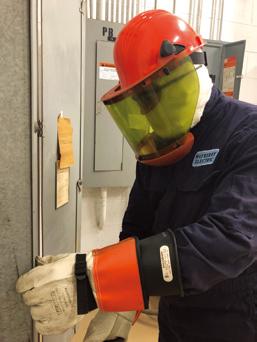
ADDCO Metal Maintenance Co. ................. (770) 985-5611
Mid America Specialty Services (800) 544-4576
Atlanta Office Liquidators Inc. (404) 505-9623
A & D Painting Inc. (404) 376-7076
American Painting & Renovations Inc. (770) 995-8787
Atlanta Painting Company (404) 550-0101
Burke Painting, Inc. ............... (770) 582-0847
CertaPro Painters of Atlanta (404) 548-7940
Certapro Painters of Duluth & Norcross (678) 895-5730
CertaPro Painters of Roswell (678) 878-4088
Freeland Painting .................. (770) 289-0887
Horizon Painting and Renovations Inc. (404) 447-0385
Integrity Finishes, Inc. ............ (678) 401-8969
Oakcliff Painting (404) 867-3707
P3 Painting & Renovations (470) 350-2452
Paint Applicators ................... (470) 606-4268
Painters on Demand (404) 603-6550
Sherwin-Williams ..................... 678-951-3214
Spectrum Painting Inc. (770) 497-0101
Atlantic Paper & Packaging (770) 461-3557
Essity Professional Hygiene ... (678) 642-6042
Georgia Pacific Corporation (770) 815-9552

Imperial Dade (404) 279-0109
Kimberly-Clark Corporation .... (678) 327-9041
Kaney & Lane, LLC (404) 892-8246
LAZ Parking ......................... (404) 787-2076
Legacy Parking Company (678) 954-4778
ParkSimple (404) 217-4024
Ecosweep............................. (404) 904-1003
Spectrum Painting Inc. (770) 497-0101
Universal Parking & Transportation (404) 798-6327
Wildcat Striping, Sealing & Paving ................................ (678) 937-9525
Amano McGann (678) 897-1734
Paving Products
Benning Construction Company404-792-1911
Georgia Paving, Inc. (770) 623-0453
GWP Paving (770) 634-6507
Miller Brothers Paving ............ (770) 491-3090
PKS Paving & Concrete Construction (404) 401-8551
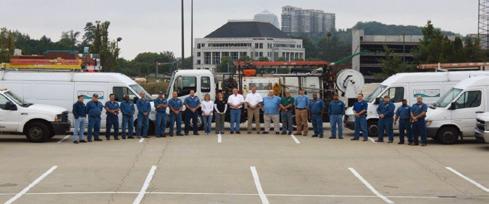
Rose Paving Company (678) 303-2500
The Surface Masters Inc. (404) 821-2388
Wildcat Striping, Sealing & Paving (678) 937-9525
Pest Control
Bug Busters, Inc. (770) 517-0200
Northwest Exterminating Co., Inc. (678) 383-1011
Orkin Inc. ............................. (404) 609-9550
Peachtree Pest Control (770) 931-9099
Pest USA (770) 985-4444
Rooter Plus!.......................... (770) 888-1931
Addison Smith Mechanical Contractor Inc. .................... (770) 832-9006
Art Plumbing Company (678) 486-2525
HM Plumbing (770) 792-1200

Keever, Dalton, & Johnson, Inc. (770) 717-1945
Legacy Mechanical Services Inc. ....................... (770) 432-1171
Rooter ProXpress Plumbing Drain Cleaning and Septic Services, Inc (470) 299-6805


Southeast Pump & Equipment Inc. 770-329-1417
Ecosweep............................. (404) 904-1003
Everclear Enterprises Inc. (404) 876-9408
Kaney & Lane, LLC (404) 892-8246
SunBrite Services .................. (770) 277-6363
Top Of the Line High Rise
Service LLC (404) 569-9544
Valcourt Building Services LLC ...................... (770) 971-2000
WiseGuys Pro-Wash (404) 596-5559
Monumental Equipment, Inc. .. (770) 490-4001
PODS for Business (470) 367-9595
Cornerstone Renovation Group LLC (770) 363-2529
SterlingView Renovations (678) 612-0831
Restoration
Addco Restoration and Preservation Group, LLC ..... (770) 688-5419
American Property Restoration Inc. (770) 733-3584
Cornerstone Renovation Group LLC (770) 363-2529
Paul Davis of Central and Southern Georgia ................ (770) 450-0495
Southern Preservation Systems (770) 982-9970
Riser Management
IMG Technologies, Inc. (630) 737-9800
All Roof Solutions Commercial Inc. (404) 697-9294
Ameristar Roofing ................. (470) 680-9330
ApolloPrimm Commercial Roofing (770) 751-6191
C.L. Burks Construction - Commercial Roofing Contractors (706) 372-0509
Commercial Roofing Group LLC (770) 831-9440
Core Roofing Systems (678) 514-2846
Empire Roofing Company Inc. (770) 948-7663
ENCORE Roofing Inc. (770) 945-0100
Innovative Roofing Group (404) 351-8797
Parsons Roofing Company ..... (678) 294-0002 Roof Partners LLC (404) 490-4647
Safeguard Roofing Group, LLC ........................ (770) 852-5045
Tecta America (404) 392-1367
Tower Roofing ....................... (770) 592-9889
Zurix Roofing Systems (706) 587-2009
The Surface Masters Inc. (404) 821-2388
ADT Commercial, LLC / Critical Systems (770) 612-9172
Allied Universal Security Services (678) 923-5775
Alscan Inc. (803) 448-8656
Basesix Systems LLC ............. 678-833-8351
DataWatch Systems (678) 910-0778
Hexagon Security .................. (229) 699-6166
Marksman Security Corporation (678) 923-5775
Mitec Controls Inc. ................ (770) 813-5959
Planned Companies (571) 220-7475
Prosegur (404) 312-6162
Securitas Security Services USA (470) 773-1074
Security Solutions of America ............................ (470) 543-1157
Walden Security (404) 937-1748
NGS Films and Graphics 866.925.2083 X.880
Riot Creative Imaging (404) 797-6785
Sign Systems........................ (678) 765-8290
PODS for Business (470) 367-9595
Fellers, Schewe, Scott & Roberts, Inc. (770) 621-9548
Graham Group (404) 634-4652
Windham Brannon, LLC ........ (678) 510-2735

HqO (404) 403-1850
Universal Parking & Transportation (404) 798-6327
Arborguard Tree Specialists (404) 299-5555
BrightView Landscape Services ............................. (770) 822-9530
Green America Tree Care (770) 560-8656
Jarvis Tree Experts (678) 430-6216 SavATree ............... (404)-288-8733 xt 14611 Sesmas Tree Service LLC (770) 655-8597
Foliage Design Systems ........ (770) 451-0885 Life on Earth, LLC (404) 875-6706 Plant Peddler, Inc..................(770) 432-2649
American Disposal Services (678) 736-0140 Waste Pro/Atlanta (678) 502-6297
BluSky Restoration Contractors (470) 345-5327 BMS CAT ............................. (770) 614-3248 Capital Restoration (770) 973-1666 EPIC (770) 516-3491
Full Circle Restoration, A Cotton Company (770) 232-9797 Parker Young Construction, A RESCON Company .......... (678) 634-8538 Remediation Group/ RGI Commercial (404) 214-1470 SERVPRO Of Decatur (770) 820-1319 SERVPRO of North Lilburn & SERVPRO of North Lawrenceville ......... (770) 709-3266 SERVPRO of Panthersville (470) 257-1716 BELFOR Property Restoration ......................... (770) 939-0128
Water Leakage Protection
The Detection Group (470) 488-5106 WaterSignal LLC ................... (626) 222-7370
Blackmore Enterprises Inc. (404) 474-4352
Waterproofing
Engineered Restorations Inc. .. (770) 682-0650 Everclear Enterprises Inc. (404) 876-9408 Southern Preservation Systems ............................. (770) 982-9970
The Morley Companies (770) 569-1100 Waterproofing Contractors Inc. ................... (770) 449-5552 Western Specialty Contractors of America ........ (678) 553-0170
Window Cleaning
Valcourt Building Services LLC (770) 971-2000
Top Of the Line High Rise Service LLC........................(404) 569-9544
Scan

PKS Paving & Concrete Construction www.pksasphaltpavingatlanta.com
PKS Paving & Concrete Construction www.pksasphaltpavingatlanta.com
Commercial Cleaning
Pritchard Industries, inc https://www.pritchardindustries.com/
Engineered Restorations Inc. http://www.er-inc.net/
Everclear Enterprises Inc. https://everclearenterprises.com/
PKS Paving & Concrete Construction www.pksasphaltpavingatlanta.com
Western Specialty Contractors www.westerngroup.com
The Morley Companies https://www.morleycompany.com/
The Morley Companies https://www.morleycompany.com/
Electrical Contractors
Eckardt Group https://www.eckardtgroup.com/
Mayberry Electric, Inc. http://www.mayberryelectric.com/
Phoenix Elevator of Georgia https://www.phoenixelevatorofga.com/
Phoenix Elevator of Georgia https://www.phoenixelevatorofga.com/
Environmental Consultants
NOVA Engineering & Environmental www.usanova.com
The Morley Companies https://www.morleycompany.com/
The Morley Companies https://www.morleycompany.com/
PKS Paving & Concrete Construction www.pksasphaltpavingatlanta.com
Paving Products and Services
Georgia Paving, Inc. http://georgiapaving.com/
PKS Paving & Concrete Construction http://pksasphaltpavingatlanta.com/
Wildcat Striping & Sealing https://www.wildcatstriping.com/
Everclear Enterprises Inc. https://everclearenterprises.com/ Specialty Roofing & Coatings, Inc. www.src-roofing.com
Top of the Line High Rise Service http://www.highriseservice.com/
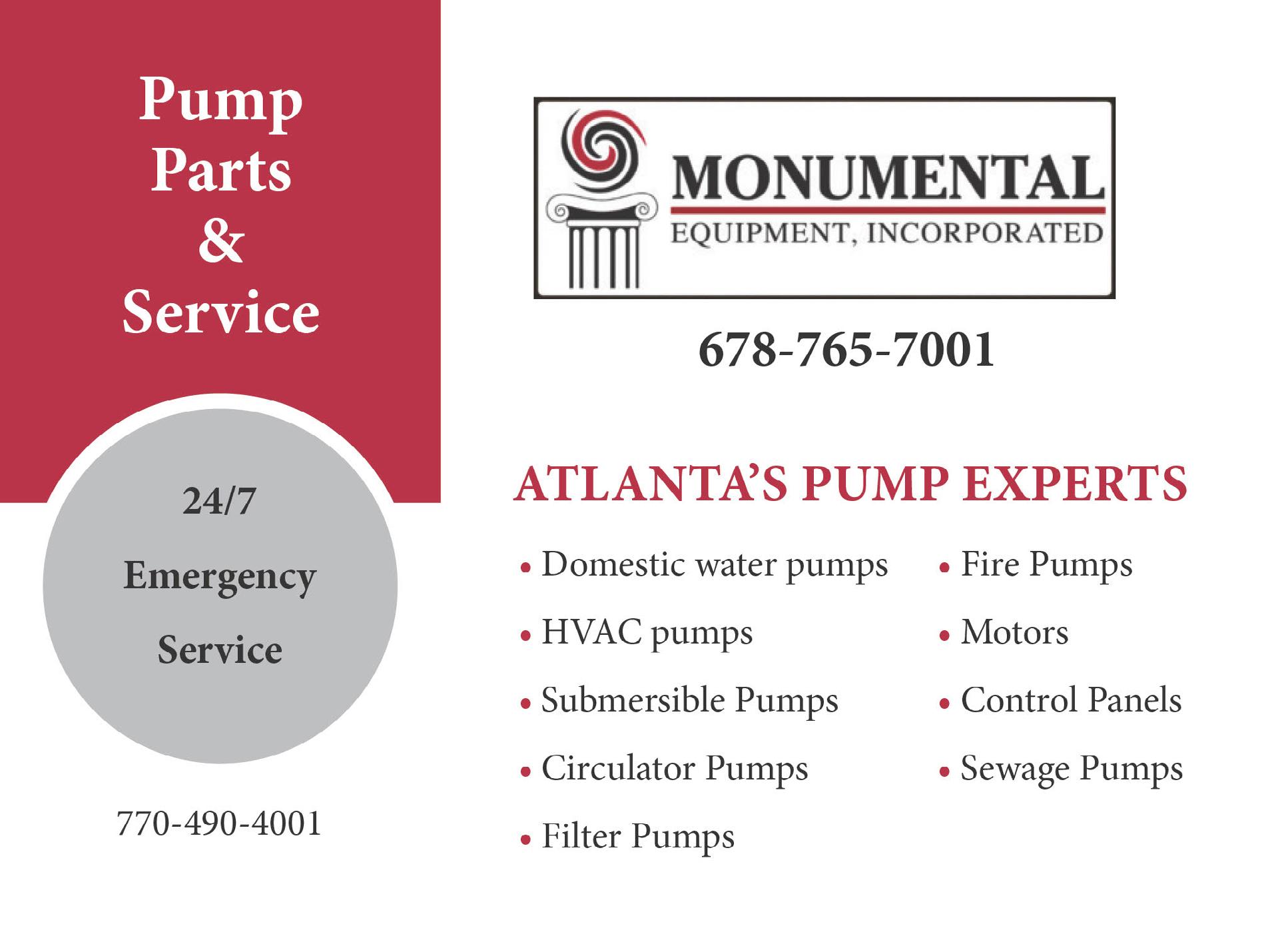
Art Plumbing http://www.artplumbing.com/
Pumping Equipment
Monumental Equipment Inc www.monumentalequipment.com
Restoration & Preservation
Everclear Enterprises Inc. https://everclearenterprises.com/
The Morley Companies https://www.morleycompany.com/
Specialty Roofing & Coatings https://src-roofing.com/
Sealcoating
PKS Paving & Concrete Construction www.pksasphaltpavingatlanta.com
Wildcat Striping & Sealing www.wildcatstriping.com
Tree Care/Tree Services
Arborguard Tree Specialist www.arborguard.com
Waterproofing
Engineered Restorations Inc. http://www.er-inc.net/ Everclear Enterprises Inc. https://everclearenterprises.com/
The Morley Companies
https://www.morleycompany.com/
Top of the Line High Rise Service http://www.highriseservice.com/ Waterproofing Contractors https://www.wcinc.com/ Western Specialty Contractors http://www.westernspecialtycontrac tors.com/
Windows/Cleaning Equipment/Supplies
Everclear Enterprises Inc. https://everclearenterprises.com/
Top of the Line High Rise Service http://www.highriseservice.com/
www.bomageorgia.org • www.creinsightjournal.com
